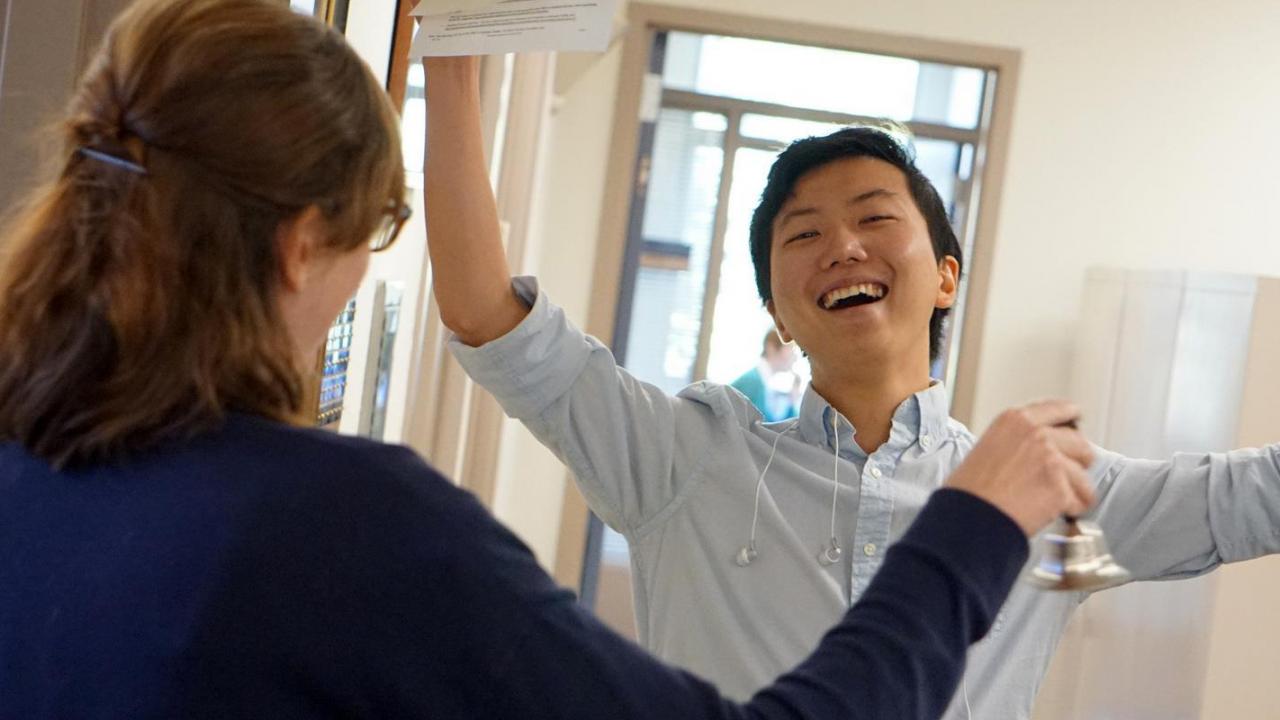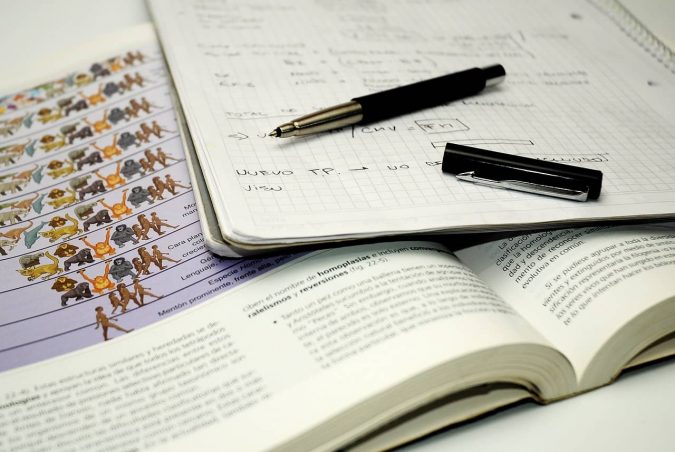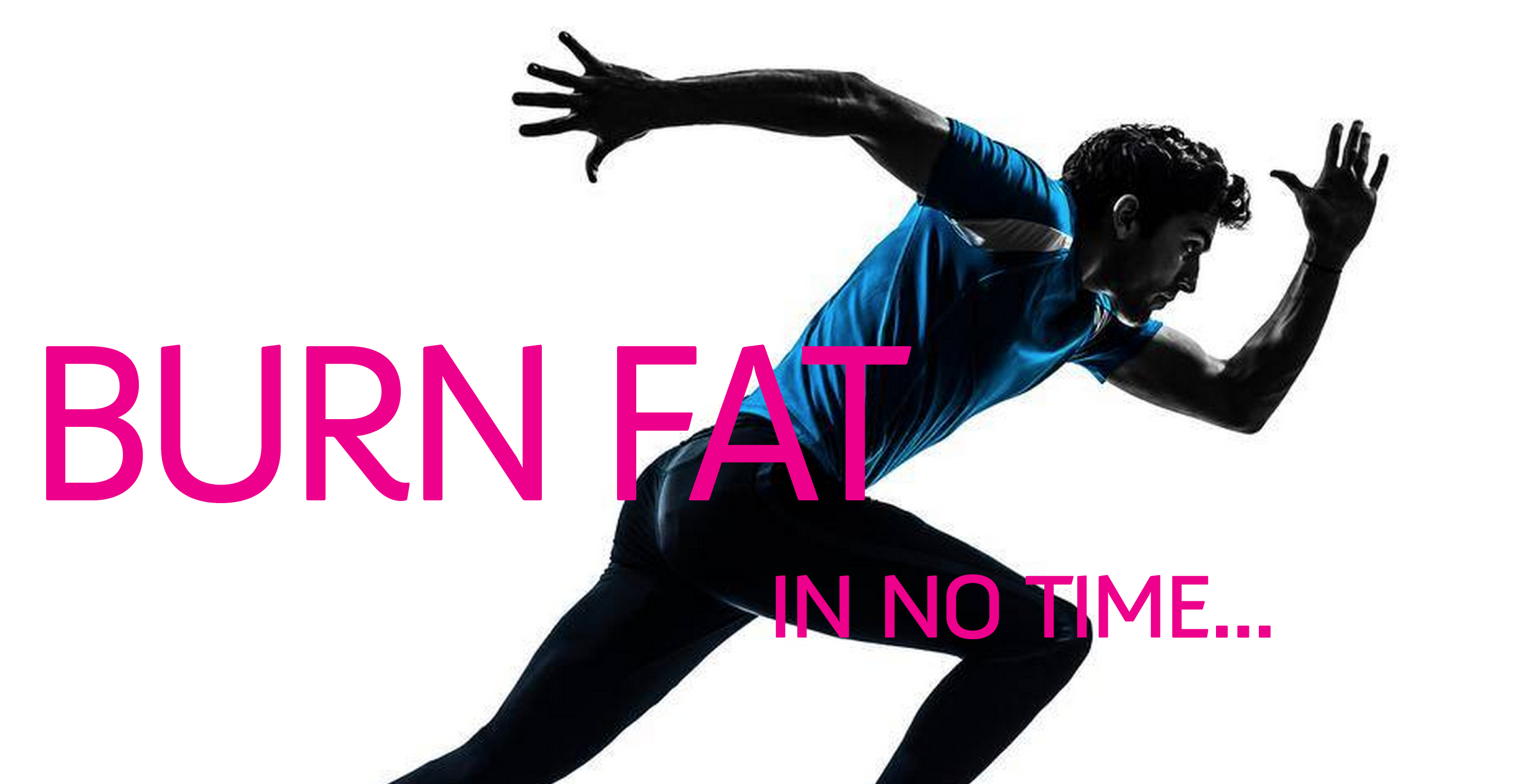
Before you go, check this out!
We have lots more on the site to show you. You've only seen one page. Check out this post which is one of the most popular of all time.

How Do I Motivate Myself To Finish My Thesis Quickly?
Some graduate or doctoral students who are in the incredibly challenging thesis or dissertation phase of their program have had thoughts about quitting. In particular, students who are moving into their third, fourth, or even tenth (yes, I’ve heard those stories too) year may begin to lose hope that they will ever finish. They may have aspired to a career as a researcher or professor, and now are on the precipice of reaching that goal, but their motivation is gone. Or, life has simply encroached upon their ability to finish the journey they embarked on so many years ago. If you are one of the many students who have had thoughts about quitting, do not despair because you are not alone.
It may not even be that you are concretely thinking about quitting. Rather, it simply may be that life has slowed you down. It has become more and more difficult to close the deal as your family and work responsibilities grow. Your thesis or dissertation is hanging over you like a never-ending whisper. “You have to do it, it’s not done, do it…” You want to get it done, but you just cannot seem to find the time, and, yes, sometimes the motivation.
The director of the doctoral program at my school said that, generally, one-third of doctoral students never complete their dissertation, mainly because life has gotten in the way. I think about all the talented students I completed coursework with. It makes me sad that some of them will not get the recognition they deserve because they were no longer able to fit doctoral studies into their lives.
Another reason some students lose motivation is that they simply feel they no longer need the degree. Perhaps another professional opportunity has come along. They’ve found that it is something they have always wanted to do or is particularly promising in terms of career advancement and pay. These folks may say to themselves, “My new position is rewarding and does not require this degree, so why spend any more time pursuing it?”
There are many reasons why you may lack the motivation or ability to complete your thesis or dissertation. You might be experiencing burnout or losing interest in your topic. Perhaps you’ve realized that you do not need the degree or that you have too much on your plate. (Read more about these specific reasons below.) But there are things you can do to get back on track. You can rekindle your motivation and come to realize that it is worth it to round the final curve and graduate.
This post was written by Stephanie A. Bosco-Ruggiero (PhD candidate in Social Work at Fordham University Graduate School of Social Service) on behalf of Dave Maslach for the R3ciprocity project (Check out the YouTube Channel or the writing feedback software ). R3ciprocity helps students, faculty, and research folk by providing a real and authentic look into doing research. It provides solutions and hope to researchers around the world.
The following are some reasons students lose their motivation to finish their thesis or dissertation and some tips for how they can get back on track.
Find a bit of time each day to work on your project
The first tip is less about motivation and more about simply finding the time to get started, keep moving forward, and to complete your thesis or dissertation. Find at least fifteen to twenty minutes a day reading, researching, outlining, or doing other small tasks that will help you move toward the critical task of writing your thesis or dissertation. There is so much to do before writing such as reviewing articles for your literature review, developing survey instruments, outlining your project, or collecting data, so try to get these tasks done in small increments.
Taking the time to do the smaller tasks of preparing to write your thesis or dissertation can be snuck in at odd times such as while waiting to see a doctor, while you are on hold with someone, while you are using public transportation, at the very end or beginning of each day, while the kids are finally amusing themselves for fifteen minutes, while you are waiting for the casserole to finish baking, etc. There are fifteen to twenty minutes in each day that you can find to do something to move your project forward.
Develop a plan
As you get more and more done with your fifteen to twenty minutes each day you will have broken the ice, the logjam, the writer’s block, the resistance -whatever you want to call it. You are THINKING and PLANNING and that makes whatever comes next easier. You will find yourself on a roll at times and spending more than your allotted fifteen to twenty minutes a day doing these smaller tasks or even writing. You may get less sleep a few nights due to the momentum you find yourself experiencing, but that is ok, it will not kill you. As you get more and more preparation for writing done, develop a plan for moving into the heavier writing phase. Think about whether you can take a day off her and there to work on your project. Having a straight 7 or 8 hours a day to write uninterrupted, here and there, will really get you going. Also, perhaps develop a goal for when you want to get each chapter of your project done by.
Do not catastrophize
Everyone gets stuck or stumped along the way of writing their thesis or dissertation. Do not make it into this insurmountable hurdle that you cannot get past. When you are feeling frustrated, do not know which direction to go in next, or feel that you have taken a wrong turn, put your work away for a few days. You will calm down; THEN contact your chair or a mentor and talk through what is challenging you. They will help you move forward productively.
Find supportive peers and ignore the naysayers
Talking to others in the same boat as you can help you feel like you are not alone in your lack of motivation, and as a group of colleagues, you can come up with ways to motivate each other. My doctoral program’s director setup a writing challenge where students work on their dissertation for half hour each day and share their accomplishments on a discussion board with others in the group. A group like this can help you keep a routine and find the inspiration and motivation to keep going.
The second part of this tip is to ignore the naysayers and those who would question why you are pursing this degree. Do not listen to those would urge you to quit. Quit only if you really want to, not because others want you to. If you do not have the strength to reject the negativity and naysayers, quitting may be the best thing for your to do, but most of you will keep going despite what others say because you truly care about your research, your field, and accomplishing what you set out to do. Listen to Dave talking for a few minutes about how easy it is, and important, to reject the negativity and keep going.
Think about the money
You really should, because you have spent a lot of money on courses and you really should get the degree to make the investment worthwhile. Why spend so much money only to be ABD the rest of your life? Also, if you think you already have the promotion or career opportunity that you want and do not need the degree (especially a graduate degree) think twice. Down the line the degree could open even more doors, help you increase your earning, and gain more respect in the field. With a PhD you will be viewed as someone who can do research and who is an independent worker and thinker.
Think about how far you have come
This gets to some of the core principles of motivation. You have accomplished so much in completing your coursework and getting through the comprehensive exam process if your program has one. There is one more step toward earning your degree, and it is critical and important step toward earning that degree. Completing a thesis or dissertation shows that you can work independently on a major research project and contribute knowledge to your field. It is key display of your adherence to the scientific process and that you have master of specific research methods. Do not accept the attitude that completing a thesis or dissertation does not matter and that having the coursework on your resume is what counts. When you complete a thesis or dissertation you have then truly earned your degree, and people will respect you for the work you have put into your venture.
Do it for the love of your discipline
If you truly find your area of study fascinating you should have a lot of the natural motivation to complete your degree. Some students in this phase may realize they are simply not that interested in their field of study, or specific research topic, anymore. That is a problem, but not insurmountable. If you have decided you want to completely abandon the field you are in because you are skeptical that it truly makes a difference or matters, talk to colleagues, mentors, and professors. Everyone has some doubt now and then about giving so much to such a narrow topic or field of study, but experienced professionals in the field can help you see the big picture of why your work matters. Also, remember that you are not wedded to your thesis or dissertation topic forever. Many graduates move away from the topic they studied for their capstone project towards a different area of study they are more interested in, after graduating, and do so with ease and satisfaction.
Choose a new research topic/question if you need to
If you are really not that into the research question you originally chose for your thesis or dissertation, choose a different one. It’s best to choose a new research question under the same general subject area so you can use some of your literature review, but by all means, go in a different direction with the research question. You are not too far along in the process if still in the proposal phase and choosing a new topic may be just the thing to help you get motivated again.
Get a writing coach
Others might call it tutoring, but what coaching or tutoring can do for you is provide you with the support you need to keep going. A good coach can help you through writing blocks and research problems. You may not have the spare change to meet with them as frequently as you would like to, but even a meeting here and there can help you gain clarity and get moving. Personally, I have helped several students who would have otherwise given up if not for the support I provided them. You can find writing tutors/coaches through tutoring website, freelancing sites, or by searching for writing/dissertation coaches.
Stay involved with the r3ciprocity community
Dave has established a wonderful community where people can get writing support, share ideas, get motived, view informative videos, and read blogs like this one. The blog and vlog sites truly have a wealth of information and advice about academia, being a student, choosing the right direction, how to deal with challenges as a student, getting motivated, solving research challenges and obstacles, etc. Personally, I have benefited greatly from watching and viewing vlogs and blogs produced by Dave and his team of writers, and from writing some posts myself.
Stick with r3ciprocity community to get your motivation back. Check out these other short motivational vlogs Dave recorded for the community:
Today Is The Right Day. | #motivation To Get Started. – YouTube
The bottom line
There are many ways recapture the motivation you need to finish your thesis or dissertation. You may even want to talk to your committee about the challenges you are facing in making progress or finding motivation. They are not there to check in on you regularly and make sure you are making progress, but they do care and may be able to help you with creating a plan for moving forward. Some schools set deadlines for completing a thesis or dissertation, while others may let students take as much time as they need (one piece of advice – don’t take ten years). If you are charged for each semester that you are working on your dissertation, this could be a motivator to get it done as well!
The keys to motivation are to look at how far you have come and how much you have already invested in terms of time and money and to ask yourself if the benefits of quitting really outweigh the rewards of finishing. Also, seek the support and encouragement of peers if your program is not so competitive that people are hesitant to do so (quite unfortunate if that is the case). Also, stick with the r3ciprocity community for extra motivation and support!
If you enjoyed this blog, you may want to check out some of these other posts on blog.r3ciprocity.com
R3ciprocity_Team
Recent Posts
Gamify Your PhD: 13 Simple Tactics to Make Research Fun and Exciting
The Power of Gamification in Research Pursuing a PhD or conducting research can often feel like a marathon with no clear finish line. The process is long, tedious, and often isolating. However,...
Being a Good Scientist: The Power of Telling the Whole Truth
The Illusion of Perfection in Academia In academia, there's an overwhelming pressure to present ourselves as "perfect." We often only show the successful side of our work—published papers,...

8 Most Effective Ways to Increase Motivation for Thesis Writing

Writing a master’s or doctoral thesis is a tough job, and many students struggle with writer’s block and putting off work. The journey requires not just skill and knowledge but a sustained motivation for thesis writing. Here are eight essential strategies to help you find and maintain your motivation to write your thesis throughout the thesis writing process.
Know why you lack motivation
It’s important to understand whether you’re just avoiding writing (procrastination) or if you genuinely don’t feel interested in it (lack of motivation). Procrastination is when you delay writing even though you want to finish it, while a lack of motivation for thesis writing is when you have no interest in writing at all. Knowing the difference helps you find the right solution. Remember, not feeling motivated doesn’t mean you can’t write; it just might be less enjoyable.
Recognize external vs. internal motivation
In the early stages of your academic journey, things like job prospects or recognition may motivate you to write your thesis. These are external motivators. Over time, they might become less effective. That’s why it’s important to develop internal motivators, like a real passion for your topic, curiosity, or wanting to make a difference in your field. Shifting to these internal motivators can keep you energized about your thesis writing for a longer period.
Develop a writing plan
As you regularly spend time on your thesis, you’ll start to overcome any initial resistance. Planning and thinking about your work will make the next steps easier. You might find yourself working more than 20 minutes some days. As you progress, plan for longer thesis writing periods and set goals for completing each chapter.
Don’t overwhelm yourself
Getting stuck is normal in thesis or dissertation writing. Don’t view these challenges as impossible obstacles. If you’re frustrated or unsure, take a break for a few days. Then, consult your advisor or a mentor to discuss your challenges and find ways to move forward effectively.
Work on your thesis daily
Try to spend 15-20 minutes daily on tasks related to your thesis or dissertation. This includes reading, researching, outlining, and other preparatory activities. You can fit these tasks into short breaks throughout your day, like waiting for appointments, during commutes, or even while cooking.
Understand that thesis writing motivation changes
Realize that thesis writing motivation isn’t always the same; it changes over time. Your drive to write will vary with different stages of your research and life changes. Knowing that motivation can go up and down helps you adapt. When you feel less motivated, focus on small, doable parts of your work instead of big, intimidating goals.
Recharge your motivation regularly
Just like you need to rest and eat well to keep your body energized, your motivation for thesis writing needs to be refreshed too. Do things that boost your mental and creative energy. This could be talking with colleagues, attending workshops, or engaging in hobbies that relax you. Stay aware of your motivation levels and take action to rejuvenate them. This way, you can avoid burnout and keep a consistent pace in your thesis work.
Keep encouraging yourself
Repeating encouraging phrases like “I will finish my thesis by year’s end” or “I’ll complete a lot of work this week” can really help. Saying these affirmations regularly can focus your energy and keep you on track with your thesis writing motivation .
Remember, the amount you write can vary each day. Some days you might write a lot, and other days less. The key is to keep writing, even if it’s just rough ideas or jumbled thoughts. Don’t let the need for perfection stop you. Listening to podcasts where researchers talk about their writing experiences can also be inspiring and motivate you in your writing journey.
Paperpal is an AI writing assistant that help academics write better, faster with real-time suggestions for in-depth language and grammar correction. Trained on millions of research manuscripts enhanced by professional academic editors, Paperpal delivers human precision at machine speed.
Try it for free or upgrade to Paperpal Prime , which unlocks unlimited access to premium features like academic translation, paraphrasing, contextual synonyms, consistency checks and more. It’s like always having a professional academic editor by your side! Go beyond limitations and experience the future of academic writing. Get Paperpal Prime now at just US$19 a month!
Related Reads:
How to make your thesis supervision work for you.
- 6 Tips for Post-Doc Researchers to Take Their Career to the Next Level
- How to Write a Conclusion for Research Papers (with Examples)
- Presenting Research Data Effectively Through Tables and Figures
CACTUS Joins Hands with Taylor & Francis to Simplify Editorial Process with a Pioneering AI Solution
You may also like, how to cite in apa format (7th edition):..., academic integrity vs academic dishonesty: types & examples, the ai revolution: authors’ role in upholding academic..., the future of academia: how ai tools are..., how to write your research paper in apa..., how to choose a dissertation topic, how to write a phd research proposal, how to write an academic paragraph (step-by-step guide), five things authors need to know when using..., 7 best referencing tools and citation management software....
Your one stop for college news and resources!
Digital magazines, write for us.

Search College News

College Education , Life on Campus
The dissertation finishing mindset: how to complete your study on time.

Writing a dissertation is literally the most difficult, challenging, and time-consuming academic requirement both Master’s and PhD students face in their academic careers. Some of us have the time and resources to approach our dissertation as a passion project and complete it on time. The rest of us are not so lucky due to various reasons, starting from procrastinating and the need to read more before writing to outside responsibilities that make the completion of a dissertation daunting, and even close to impossible.
While research is not easy by any means and dissertations seem to actively resist your planning attempts, there is only one major thing that distinguishes a productive and effective researcher from one who misses their deadlines. And this thing is a mindset or, let us put it this way, a dissertation-finishing mindset.
Students with this kind of mindset take a pragmatic approach to writing a dissertation. You know the sort: those students who can abandon a line of inquiry without hesitation if it does not add value to their writing or is going somewhere unproductive. Their dissertations get approved because they strictly follow their university’s content, formatting, structure, and ethical requirements. No more and no less. A successful dissertation writer is not precious about their point of view or ‘voice’, which makes them effective. All that matters for these people is that the job must be done efficiently.
One might say that experience is the best teacher and the more you write academic papers, the more you become effective and efficient in doing it. However, how could you possibly plan and complete your dissertation on time if this is the first time you face such a huge task? Indeed, few of us as students write more than one dissertation. But let’s face it: writing a dissertation is not much different from writing your ordinary essay. Of course, a dissertation is a much more complex piece of research and academic writing but your academic career has been developing up to this particular point where you need to apply the skills and competencies you have been developing since your admission. Thus, it’s not something completely new, it’s just another level of complexity.
So what do you need to develop a dissertation-finishing mindset? Well, there are several tips we can give that will help you stop procrastinating and become a more effective and efficient writer.
Other people’s opinions can be unhelpful noise
If you want to finish your dissertation on time, you should make it a priority. However, some students’ definitions of priority may differ drastically. When we say your dissertation comes first, we mean above all commitments. Some people may be resistant to this idea and that is ok.
Your family members and friends might not get why you are so committed to your dissertation, so spending some time explaining your reasons might be a good idea to keep your relationships healthy. You should also take other people’s opinions about your study with caution. Sure, it is helpful to get some advice from recognised experts and supervisors on how to improve your thesis. However, all these people have their own pet methods and theories, so hearing how they would do it is largely pointless. Remember that they are not writing your dissertation – you are.
Finishing your dissertation ‘properly’ is a mirage
Dissertations, especially at a PhD level, open as many research issues and problems as they solve. That is why you should find a way to draw a narrow line between arriving at a useful and meaningful conclusion and a willingness to invest more resources in the study. The truth is that no dissertation is ‘complete’ in terms of its data-gathering exercise, meaning every academic study could benefit from more time, effort, and money. Developing the ability to identify this line, even if it is uncomfortable, is a useful skill that would help you become a more effective and efficient writer and complete your dissertation on time.
Do not see mistakes as a path to perfection
Making mistakes in research and academic writing is a reality we all have to bear with. Believe us when we tell you that literary every academic writer has had the experience of throwing out a piece of writing or a data set and starting all over again. One could argue that without mistakes it is impossible to learn how to become better. There is even a popular quote by Samuel Beckett who said “Ever tried. Ever failed. No matter. Try again. Fail again. Fail better”.
However, there is no point in spending too much time dwelling on your mistakes because you can end up thinking you are dumb and you will never get your dissertation done on time. Still, sometimes we can make the same mistake over and over again, and this is something you must deal with to become an efficient writer. To do that, you should identify what went wrong. Afterwards, do what you can to rectify your mistake and move on. If the same mistake happens again, think about how you could avoid it next time.
Take care of your health and wellbeing
Sure, your dissertation should take priority over many things if you want to complete it on time. However, one thing that is more important than your dissertation is your health because it will significantly affect your research and writing abilities. Do not forsake eating organic food, drinking plenty of fluids, and exercising to keep your body healthy and your mind active. Sleep well and give yourself some rest from time to time to avoid burnout , maintain a high level of motivation and engagement.
There is a myriad of circumstances that can hinder students’ ability to finish their dissertations on time. While we all have outside commitments and responsibilities, it is crucial to have the right mindset to complete your study according to the schedule. We believe that the tips outlined in this article can help you cross the dissertation finish line without flying past the deadline.
Author Bio: Anna is Marketing Manager for online essay writing service 15 Writers. She is an expert in digital marketing and enjoys writing articles on Business, Marketing and Technology.
SEE ALSO: Dissertation Writing Techniques for College Students
Related Articles

Best Holiday Destinations for Students This Summer

Jionni LaValle, the man who got Snooki to settle down

Reese Witherspoon apologizes for drunkenly threatening cop, getting arrested

GOZIRA! (Godzilla) Review

What's Trending

What Are the Most Competitive Job Markets in 2024?

Unraveling America’s $1.74 Trillion Student Debt Conundrum

J.Lo – Ben Affleck: The Roast That Sparked the Breakup

Affirmative Action Ruling: Colleges Struggle to Meet Diversity Goals

Chicago Democratic Convention: Democrats Unite to Crown Their Savior
Recommended for you.

NFL dresses in Pink: Breast Cancer Awareness

Food for Fall: Pumpkin Soup

Lollapalooza: Friday recap

Review: Top Spin 4
- Career Advice
4 Strategies for Completing Your Dissertation
By Sarah Schwintz
You have / 5 articles left. Sign up for a free account or log in.

Istockphoto.com/supirloko89
Students take about eight years to complete a doctoral degree -- twice the time of a bachelor’s degree. Also, the average age of a doctoral student is 33. Many doctoral students work full-time and have families and outside responsibilities than can make completing a dissertation an impossible task. In fact, almost half of all doctoral students complete their course work but not their dissertation.
This article explains how to avoid the dreaded doctoral degree attrition -- by being your own manager, surrounding yourself with wise people, developing a professional relationship with your chair and creating good habits. You can increase your odds of finishing your dissertation by following these four steps.
No. 1. Practice time management, be organized and meet deadlines. Time management is essential. Make two-week deadlines for every part of the dissertation process, including reading, writing, edits and meetings. Set your own goals for dates on writing your proposal, defending your proposal, seeking IRB approval, conducting your research, conducting your analysis, writing chapters and preparing for your defense. Create deadlines for each week and always stick to them.
Once you start dissertating, don’t spend fewer than 10 hours a week researching, writing, editing and repeat . Schedule this time in. Dissertating now becomes your priority and routine. Cut out extra noise in your life. Trying to be a rock star at work, doing PTA work for your kids or committee work, teaching extra courses, taking lunch breaks, working out and sleeping all need to get cut out of your life. I’m kidding … OK, only a little. Make your dissertation a priority to be done in a year. Dragging this out even longer will make you feel like you are scratching your nails on a chalkboard.
Organize a folder on your cloud drive that has subfolders for chapters, presentations, tables, figures, meeting notes and example dissertations. You might create at least five drafts of every chapter, so this will help keep you organized.
Know your graduate school’s deadlines. There is the defense notification deadline, the abstract deadline, the application to graduate deadline, commencement RSVP, regalia purchases at the bookstore deadline, the defense deadline, submission of dissertation for formatting review and the defer commencement walk deadline (optional). Oh, and you need to complete forms for all these deadlines. Knowing all this information -- and your faculty or staff liaisons in the graduate school and your college -- is important. It is not your chair’s job to remind you.
No. 2. Surround yourself with wise and supportive people. Get your life partner on board with you. Let your partner read this article and let them say to you, “I love you, I support you, I’m right here to help you to the finish line.” Then specifically outline what you need from your partner. I told my husband to do all the dishes, take out all the trash, take our son to school, grocery shop every Saturday (I wrote the list), help me prepare meals on Sundays and let me shower once a day in peace. I also let him know I’d need to write on some Sundays, so he’d better prepare for life as a single dad. You need a “unicorn partner,” so turn yours into one for a year.
Second to your life partner, get your boss on board with you. I told my boss I was ready to finish and asked him to give me one working day a week to complete my dissertation. He agreed, and I promised him I would always put work first, use lunch breaks if needed and come in to work early.
Before bothering your chair with questions, first ask other sources -- such as your other doctoral candidate friends or your graduate school writing center -- and research answers online. Also ask your doctoral friends for their favorite statistical analysis books. This will help you with references for your methodology chapter.
Hire a tutor if you are deficient in one area, like statistics, before bothering your chair with endless minor questions. It’s not their job to teach or reteach you statistics. For example, I hired a graduate student that knew STATA statistical software and paid him $400 cash for 16 hours of consulting. We met for four hours every Friday for a month.
Also, get help editing the final draft. Hire a professional editor if needed. In addition, have a staff member in the graduate school writing center help you. After staring at this document for more than a year, you are bound to make a few extra spaces, forget a comma or spell “from” as “form.” Get it perfect, and get it right … just one last time.
Read/skim at least 10 different dissertations using the methodology you like -- whether quantitative, qualitative or mixed methods. Then pick your top three favorites. Do not plagiarize, but use the structure of your favorite dissertations as a guide for your own. This isn’t rocket science -- don’t reinvent the wheel.
Finally, attend a dissertation proposal and defense. That will help you see the room, prepare you for what you need to bring, help you understand the flow of the process and help ease your fears.
No. 3. Develop a professional relationship with your chair. Understand your department chair has a research agenda, courses to teach, service committees to deal with and a plethora of other dissertating students just like you. You are a small part of their life. Don’t take advantage of this, because you will wear them out for future students.
Have a solid conversation with your chair at least once a year, either face-to-face or on Skype. Get your check-ins with your chair down to every two weeks and make good use of their time and expertise for the 20 minutes you have their attention. Remember, meetings with your chair are effective by phone or online. Learn Zoom and Skype for Business.
When your chair says, “You might want to …,” “investigate …,” “maybe I suggest …,” know that isn’t really an invitation to intellectually debate. Don’t argue -- rather, write down what they have to say, and go do it. At this point, your chair has listened to you and is giving you words of wisdom, not merely making suggestions. Take notes in every meeting with every committee member, then come back to your desk and type out your notes. This information is crucial to how you will prepare for your defense.
No. 4. Create excellent dissertation habits. Before you solidify your topic, you need to research. Don’t bore your chair with endless conversations about what you could research. Simply present your chair with three ideas, and then let your chair pick one.
Save research articles on Mendeley or a system that works for you. I eventually printed out my 100-plus sources and put them in binders alphabetically.
The next step is to write an annotated bibliography of at least 30 peer-reviewed articles. Create at least three headings of general topics you are going to talk about. Then write a draft of your literature review. Present this to your chair and ask them about theories to use. Then go with the suggestions you receive and just start writing.
Take care of yourself physically, emotionally, mentally and spiritually. Close the door to social media to simplify your life. Write when it’s a good time of day for you. Carry a notebook and pen to write things down, as you will start obsessing over your dissertation.
Know your APA manual; keep it close. Refer to it often. Also, keep the book Complete Your Dissertation or Thesis in Two Semesters or Less with you at all times. Read it often.
When presenting your proposal and your defense presentation, practice out loud at least five times. Type out what you will say in the notes section of your PowerPoint. Ask a recently graduated professor whom you respect for a copy of their PowerPoint, and use it as a template.
No single piece of advice will help you complete your dissertation, but these suggestions may help. Know that, in the end, completing your dissertation is worth it. You may finally feel like you have a seat at the table, and others finally listen to your wisdom and insight. A raise and promotion may even come your way. Good luck.

The Imperfect Tutor: Grading, Feedback and AI
Patricia Taylor has found using AI takes more time and creates more problems than not if instructors want students to
Share This Article
More from career advice.

How to Mitigate Bias and Hire the Best People
Patrick Arens shares an approach to reviewing candidates that helps you select those most suited to do the job rather

The Warning Signs of Academic Layoffs
Ryan Anderson advises on how to tell if your institution is gearing up for them and how you can prepare and protect y

Legislation Isn’t All That Negatively Impacts DEI Practitioners
Many experience incivility, bullying, belittling and a disregard for their views and feelings on their own campuses,
- Become a Member
- Sign up for Newsletters
- Learning & Assessment
- Diversity & Equity
- Career Development
- Labor & Unionization
- Shared Governance
- Academic Freedom
- Books & Publishing
- Financial Aid
- Residential Life
- Free Speech
- Physical & Mental Health
- Race & Ethnicity
- Sex & Gender
- Socioeconomics
- Traditional-Age
- Adult & Post-Traditional
- Teaching & Learning
- Artificial Intelligence
- Digital Publishing
- Data Analytics
- Administrative Tech
- Alternative Credentials
- Financial Health
- Cost-Cutting
- Revenue Strategies
- Academic Programs
- Physical Campuses
- Mergers & Collaboration
- Fundraising
- Research Universities
- Regional Public Universities
- Community Colleges
- Private Nonprofit Colleges
- Minority-Serving Institutions
- Religious Colleges
- Women's Colleges
- Specialized Colleges
- For-Profit Colleges
- Executive Leadership
- Trustees & Regents
- State Oversight
- Accreditation
- Politics & Elections
- Supreme Court
- Student Aid Policy
- Science & Research Policy
- State Policy
- Colleges & Localities
- Employee Satisfaction
- Remote & Flexible Work
- Staff Issues
- Study Abroad
- International Students in U.S.
- U.S. Colleges in the World
- Intellectual Affairs
- Seeking a Faculty Job
- Advancing in the Faculty
- Seeking an Administrative Job
- Advancing as an Administrator
- Beyond Transfer
- Call to Action
- Confessions of a Community College Dean
- Higher Ed Gamma
- Higher Ed Policy
- Just Explain It to Me!
- Just Visiting
- Law, Policy—and IT?
- Leadership & StratEDgy
- Leadership in Higher Education
- Learning Innovation
- Online: Trending Now
- Resident Scholar
- University of Venus
- Student Voice
- Academic Life
- Health & Wellness
- The College Experience
- Life After College
- Academic Minute
- Weekly Wisdom
- Reports & Data
- Quick Takes
- Advertising & Marketing
- Consulting Services
- Data & Insights
- Hiring & Jobs
- Event Partnerships
4 /5 Articles remaining this month.
Sign up for a free account or log in.
- Sign Up, It’s FREE
- Contributors
- Valuing Black Lives
- Black Issues in Philosophy
- Blog Announcements
- Climate Matters
- Genealogies of Philosophy
- Graduate Student Council (GSC)
- Graduate Student Reflection
- Into Philosophy
- Member Interviews
- On Congeniality
- Philosophy as a Way of Life
- Philosophy in the Contemporary World
- Precarity and Philosophy
- Recently Published Book Spotlight
- Starting Out in Philosophy
- Syllabus Showcase
- Teaching and Learning Video Series
- Undergraduate Philosophy Club
- Women in Philosophy
- Diversity and Inclusiveness
- Issues in Philosophy
- Public Philosophy
- Work/Life Balance
- Submissions
- Journal Surveys
- APA Connect

Dissertating Like a Distance Runner: Ten Tips for Finishing Your PhD

The above photo is of Sir Mo Farah running past Buckingham Palace into the home stretch of the London Marathon. I took the photo two days after my viva, in which I defended my PhD dissertation. Farah become a British hero when he and his training partner, Galen Rupp, won the gold and silver medals in the 10k at the London Olympic Games.
I had the honor of racing against Rupp at Nike’s Boarder Clash meet between the fastest high school distance runners in my home state of Washington and Rupp’s home state of Oregon. I’m happy to provide a link to the results and photos of our teenage selves since I beat Galen and Washington won the meet. (Note: In the results, ‘Owen’ is misspelled with the commonly added s , which I, as a fan of Jesse Owens, feel is an honor.) By the time we were running in college—Rupp for the University of Oregon and myself for the University of Washington—he was on an entirely different level. I never achieved anything close to the kind of running success Rupp has had. Yet, for most of us mortals, the real value in athletics is the character traits and principles that sports instill in us, and how those principles carry over to other aspects of life. Here I want to share ten principles that the sport of distance running teaches, which I found to be quite transferrable to writing my doctoral dissertation.
To provide some personal context, I began as a doctoral researcher at the University of Birmingham in 2014. At that time my grandparents, who helped my single father raise my sister and me, continued their ongoing struggle with my Grandfather’s Alzheimer’s. It was becoming increasingly apparent that they would benefit from having my wife and I nearby. So, in 2015 we moved to my hometown of Yakima, Washington. That fall I began a 2/2 teaching load at a small university on the Yakama Nation Reservation as I continued to write my dissertation. Since finishing my PhD four years ago, in 2018, I have published one book , five research articles , and two edited volume chapters related in various ways to my dissertation. As someone living in rural Eastern Washington, who is a first-gen college grad, I had to find ways to stay self-motivated and to keep chipping away at my academic work. I found the following principles that I learned through distance running very helpful.
(1) Establish community . There are various explanations, some of which border on superstitious, for why Kenyan distance runners have been so dominant. Yet one factor is certainly the running community great Kenyan distance runners benefit from at their elite training camps, as discussed in Train Hard, Win Easy: The Kenyan Way . Having a community that values distance running can compel each member of the community to pursue athletic excellence over a long period of time. The same can be said for academic work. Many doctoral researchers have built-in community in their university departments, but for various reasons this is not true for everyone. Thankfully, alternative ways to establish community have never been easier, predominantly due to technology.
Since my dissertation applied Aristotelian causation and neo-Thomistic hylomorphism to mental causation and neural correlates of consciousness, I found it immensely helpful to meet consistently with neuroscientist, Christof Koch, and philosopher of mind, Mihretu Guta. Mihretu does work on the philosophy of consciousness and Christof propelled the dawn of the neurobiology of consciousness with Francis Crick . Though Mihretu lives in Southern California, we met monthly through Skype, and I would drive over the Cascade Mountains once a month to meet with Christof in Seattle. As my dissertation examiner, Anna Marmodoro, once reminded me: the world is small—it’s easier than ever before to connect with other researchers.
It can also be helpful to keep in mind that your community can be large or small. As some athletes train in large camps consisting of many runners, others have small training groups, such as the three Ingebrigtsen brothers . Likewise, your community could be a whole philosophy department or several close friends. You can also mix it up. As an introvert, I enjoyed my relatively small consistent community, but I also benefitted from attending annual regional philosophy conferences where I could see the same folks each year. And I especially enjoyed developing relationships with other international researchers interested in Aristotelian philosophy of mind at a summer school hosted by the University of Oxford in Naples, which Marmodoro directed. For a brief period, we all stayed in a small villa and talked about hylomorphism all day, each day, while enjoying delicious Italian food.
Whatever your community looks like, whatever shape it takes, what matters is that you’re encouraged toward accomplishing your academic goal.
(2) Know your goal. Like writing a dissertation, becoming a good distance runner requires a lot of tedious and monotonous work. If you don’t have a clear goal of what you want to achieve, you won’t get up early, lace up your running shoes, and enter the frosty morning air as you take the first of many steps in your morning run. There are, after all, more enticing and perhaps even more pressing things to do. Similarly, if you don’t have a clear goal of when you want to finish your dissertation, it is easy to put off your daily writing for another day, which can easily become more distant into the future.
(3) Be realistic about your goal . While it is important to have a clear goal as a distance runner and as a doctoral researcher, it is important for your goal to be realistic. This means your goal should take into account the fact that you are human and therefore have both particular strengths and limitations. Everyone enters the sport of distance running with different strengths and weaknesses. When Diddy ran the city it would have been unrealistic for him to try to break the two-hour barrier in the marathon, as Eliud Kipchoge did . If Diddy made that his goal, he probably would have lost all hope in the first mile of the marathon and never finished. Because he set a more realistic goal of breaking four hours, not two hours, he paced himself accordingly and actually finished.
The parent of two young children who is teaching part-time can certainly finish a dissertation. But the parent will have a greater likelihood of doing so with a reasonable goal that fits that individual’s strengths and limitations. If the parent expects to finish on the same timescale as someone who is single with no children nor teaching responsibilities, this will likely lead to disappointment and less motivation in the middle of the process. Motivation will remain higher, and correspondingly so will productivity that is fueled by motivation, if one’s goal is realistic and achievable.
Another element of having a realistic goal is being willing to adapt the goal as your circumstances change. Sometimes a runner might enter a race expecting to place in the top five and midway through the race realize that she has a great chance of winning (consider, for example, Des Linden’s victory at the Boston Marathon ). At that point, it would be wise to revise one’s goal to be ‘win the race’ rather than simply placing in the top five. At other times, a runner might expect to win the race or be on the podium and midway realize that is no longer possible. Yet, if she is nevertheless within striking distance of placing in the top five, then she can make that her new goal, which is realistic given her current situation and will therefore sustain her motivation to the finish line. Sara Hall, who could have and wanted to crack the top three, held on for fifth at the World Championships marathon because she adjusted her goal midrace.
The PhD candidate who initially plans to finish her dissertation in three years but then finds herself in the midst of a pandemic or dealing with a medical issue or a family crisis may not need to give up on her goal of finishing her dissertation. Perhaps, she only needs to revise her goal so that it allows more time, so she finishes in five years rather than three. A PhD finished in five years is certainly more valuable than no PhD.
(4) Know why you want to achieve your goal . My high school cross-country coach, Mr. Steiner, once gave me a book about distance running entitled “Motivation is the Name of the Game.” It is one of those books you don’t really need to read because the main takeaway is in the title. Distance running requires much-delayed gratification—you must do many things that are not intrinsically enjoyable (such as running itself, ice baths, going to bed early, etc.) in order to achieve success. If you don’t have a solid reason for why you want to achieve your running goal, you won’t do the numerous things you do not want to do but must do to achieve your goal. The same is true for finishing a PhD. Therefore, it is important to know the reason(s) why you want to finish your dissertation and why you want a PhD.
As a side note, it can also be immensely helpful to choose a dissertation topic that you are personally very interested in, rather than a topic that will simply make you more employable. Of course, being employable is something many of us must consider. Yet, if you pick a topic that is so boring to you that you have significant difficulty finding the motivation to finish your dissertation, then picking an “employable dissertation topic” will be anything but employable.
(5) Prioritize your goal . “Be selfish” were the words of exhortation my college cross-country team heard from our coaches before we returned home for Christmas break. As someone who teaches ethics courses, I feel compelled to clarify that “be selfish” is not typically good advice. However, to be fair to my coaches, the realistic point they were trying to convey was that at home we would be surrounded by family and friends who may not fully understand our running goals and what it takes to accomplish them. For example, during my first Christmas break home from college, I was trying to run eighty miles per week. Because I was trying to fit these miles into my social schedule without much compromise, many of these miles were run in freezing temps, in the dark, on concrete sidewalks with streetlights, rather than dirt trails. After returning to campus following the holidays, I raced my first indoor track race with a terribly sore groin, which an MRI scan soon revealed was due to a stress fracture in my femur. I learned the hard way that I have limits to what I can do, which entails I must say “no thanks” to some invitations, even though that may appear selfish to some.
A PhD researcher writing a dissertation has a substantial goal before her. Yet, many people writing a dissertation have additional responsibilities, such as teaching, being a loving spouse, a faithful friend, or a present parent. As I was teaching while writing my dissertation, I often heard the mantra “put students first.” Yet, I knew if I prioritized my current students over and above finishing my dissertation, I would, like many, never finish my dissertation. However, I knew it would be best for my future students to be taught by an expert who has earned a PhD. So, I put my future students first by prioritizing finishing my PhD . This meant that I had to limit the teaching responsibilities I took on. Now, my current students are benefitting from my decision, as they are taught by an expert in my field.
While prioritizing your dissertation can mean putting it above some things in life, it also means putting it below other things. A friend once told me he would fail in a lot of areas in life before he fails as a father, which is often what it means to practically prioritize one goal above another. Prioritizing family and close friendships need not mean that you say ‘yes’ to every request, but that you intentionally build consistent time into your schedule to foster relationships with the people closest to you. For me, this practically meant not working past 6:00pm on weekdays and taking weekends off to hang out with family and friends. This relieved pressure, because I knew that if something went eschew with my plan to finish my PhD, I would still have the people in my life who I care most about. I could then work toward my goal without undue anxiety about the possibility of failing and the loss that would entail. I was positively motivated by the likely prospect that I would, in time, finish my PhD, and be able to celebrate it with others who supported me along the way.
(6) Just start writing . Yesterday morning, it was five degrees below freezing when I did my morning run. I wanted to skip my run and go straight to my heated office. So, I employed a veteran distance running trick to successfully finish my run. I went out the door and just started running. That is the hardest part, and once I do it, 99.9% of the time I finish my run.
You may not know what exactly you think about a specific topic in the chapter you need to write, nor what you are going to write each day. But perhaps the most simple and helpful dissertation advice I ever received was from David Horner, who earned his doctorate in philosophy from the University of Oxford. He told me: “just start writing.” Sometimes PhD researchers think they must have all their ideas solidified in their mind before they start writing their dissertation. In fact, writing your dissertation can actually help clarify what you think. So “just start writing” is not only simple but also sage advice.
(7) Never write a dissertation . No great marathoner focuses on running 26.2 miles. Great distance runners are masters of breaking up major goals into smaller goals and then focusing on accomplishing one small goal at a time, until they have achieved the major goal. Philosophers can understand this easily, as we take small, calculated steps through minor premises that support major premises to arrive at an overall conclusion in an argument.
Contained within each chapter of a dissertation is a premise(s) in an overall argument and individual sections can contain sub-premises supporting the major premise of each chapter. When you first start out as a doctoral researcher working on your dissertation, you have to construct an outline of your dissertation that maps out the various chapters and how they will relate to your overall conclusion. Once you have that outline in place, keep it in the back of your mind. But do not focus on writing the whole, which would be overwhelming and discouraging. Rather, focus on writing whichever chapter you are working on. The fastest American marathoner, Ryan Hall, wrote a book that sums up the only way to run long distances in the title Run the Mile You’re In . And Galen Rupp discusses in this interview how he mentally breaks up a marathon into segments and focuses on just finishing one segment at a time. Whatever chapter you’re writing, make it your goal to write that chapter. Once you’ve accomplished that goal, set a new goal: write the next chapter. Repeat that process several times and you will be halfway through your dissertation. Repeat the process a few more times, and you will be done.
By the time you have finished a master’s degree, you have written many chapter-length papers. To finish a dissertation, you essentially write about eight interconnected papers, one at a time, just as you have done many times before. If you just write the chapter (which you could call a “paper” if that feels like a lighter load) you’re writing, before you know it, you will have written a dissertation.
(8) Harness the power of habits . Becoming a great distance runner requires running an inordinate number of miles, which no one has the willpower to do. The best marathoners in the world regularly run well over one hundred miles a week, in addition to stretching, lifting weights, taking ice baths, and eating healthy. Not even the most tough-minded distance runner has the gumption to make all the individual decisions that would be required in order to get out the door for every run and climb into every ice bath apart from the development of habits. The most reliable way around each distance runner’s weakness of will, or akrasia , is developing and employing habits. The same can be true for writing.
If you simply try to write a little bit each weekday around the same time, you will develop a habit of writing at that time each day. Once you have that habit, the decision to write each weekday at that time will require less and less willpower over time. Eventually, it will take some willpower to not write at that time. I have found it helpful to develop the routine of freewriting for a few minutes just before starting my daily writing session of thirty minutes during which I write new content, before working on editing or revising existing content for about thirty minutes. My routine helped me develop the daily habit of writing, which removes the daily decision to write, as I “just do it” (to use Nike’s famous line) each day.
I have also found it helpful to divide my days up according to routines. As a morning person, I do well writing and researching in the morning, doing teaching prep and teaching during the middle of the day, and then doing mundane tasks such as email at the end of the day.
(9) Write for today and for tomorrow . Successful distance runners train for two reasons. One reason—to win upcoming races—is obvious. However, in addition to training for upcoming races, the successful distance runner trains today for the training that they want to be capable of months and years ahead. You cannot simply jump into running eighty, ninety, or one-hundred-mile weeks. It takes time to condition your body to sustain the stress of running high mileage weeks. A runner must have a long-term perspective and plan ahead as she works toward her immediate goals on the way to achieving her long-term goals. Similarly, for the PhD researcher, writing a dissertation lays the groundwork for future success.
For one, if the PhD candidate develops healthy, sustainable, productive habits while writing a dissertation, these habits can be continued once they land an academic job. It is no secret that the initial years on the job market, or in a new academic position, can be just as (or more) challenging than finishing a PhD. Effective habits developed while writing a dissertation can be invaluable during such seasons, allowing one to continue researching and writing even with more responsibilities and less time.
It is also worth noting that there is a sense in which research writing becomes easier, as one becomes accustomed to the work. A distance runner who has been running for decades, logging thousands of miles throughout their career, can run relatively fast without much effort. For example, my college roommate, Travis Boyd, decided to set the world record for running a half marathon pushing a baby stroller nearly a decade after we ran for the University of Washington. His training was no longer what it once was during our collegiate days. Nevertheless, his past training made it much easier for him to set the record, even though his focus had shifted to his full-time business career and being a present husband and father of two. I once asked my doctoral supervisors, Nikk Effingham and Jussi Suikkanen, how they were able to publish so much. They basically said it gets easier, as the work you have done in the past contributes to your future publications. Granted, not everyone is going to finish their PhD and then become a research super human like Liz Jackson , who finished her PhD in 2019, and published four articles that same year, three the next, and six the following year. Nevertheless, writing and publishing does become easier as you gain years of experience.
(10) Go running . As Cal Newport discusses in Deep Work , having solid boundaries around the time we work is conducive for highly effective academic work. And there is nothing more refreshing while dissertating than an athletic hobby with cognitive benefits . So, perhaps the best way to dissertate like a distance runner is to stop writing and go for a run.
Acknowledgments : Thanks are due to Aryn Owen and Jaden Anderson for their constructive feedback on a prior draft of this post.

- Matthew Owen
Matthew Owen (PhD, University of Birmingham) is a faculty member in the philosophy department at Yakima Valley College in Washington State. He is also an affiliate faculty member at the Center for Consciousness Science, University of Michigan. Matthew’s latest book is Measuring the Immeasurable Mind: Where Contemporary Neuroscience Meets the Aristotelian Tradition .
- Dissertating
- Finishing your PhD
- graduate students
- Sabrina D. MisirHiralall
RELATED ARTICLES
Indigenous philosophy, getty l. lustila, failure, camaraderie, and shared embodied learning, on divestiture, steven m. cahn, epistemic doubt: a dream we dreamed one afternoon long ago, how i got to questions, new series: ai and teaching, leave a reply cancel reply.
Save my name, email, and website in this browser for the next time I comment.
Notify me of follow-up comments by email.
Notify me of new posts by email.
WordPress Anti-Spam by WP-SpamShield
Currently you have JavaScript disabled. In order to post comments, please make sure JavaScript and Cookies are enabled, and reload the page. Click here for instructions on how to enable JavaScript in your browser.
Advanced search
Posts You May Enjoy
To salt or not to salt the pasta water: a reflection..., is there a silver lining to algorithm bias pt. 1, mistaking good looks for goodness: yusuf dikeç and the halo effect, syllabus showcase: engineering ethics, vanessa a. bentley, what makes a course engaging, syllabus showcase: philosophical english, peter finocchiaro.
The Graduate College at the University of Illinois at Urbana-Champaign
Top ten dissertation completion strategies, strategy 1: project manager, strategy 2: productivity, strategy 3: persistence, strategy 4: routines and structure, strategy 5: workplace distractions, strategy 6: software tools, strategy 7: mobile workplaces, strategy 8: accountability, strategy 9: creativity and flexibility, strategy 10: wellness.

4 Strategies for Completing Your Dissertation

Students take about eight years to complete a doctoral degree — twice the time of a bachelor’s degree. Also, the average age of a doctoral student is 33. Many doctoral students work full-time and have families and outside responsibilities than can make completing a dissertation an impossible task. In fact, almost half of all doctoral students complete their course work but not their dissertation.
This article explains how to avoid the dreaded doctoral degree attrition — by being your own manager, surrounding yourself with wise people, developing a professional relationship with your chair and creating good habits. You can increase your odds of finishing your dissertation by following these four steps.
No. 1. Practice time management, be organized and meet deadlines. Time management is essential. Make two-week deadlines for every part of the dissertation process, including reading, writing, edits and meetings. Set your own goals for dates on writing your proposal, defending your proposal, seeking IRB approval, conducting your research, conducting your analysis, writing chapters and preparing for your defense. Create deadlines for each week and always stick to them.
Once you start dissertating, don’t spend fewer than 10 hours a week researching, writing, editing and repeat . Schedule this time in. Dissertating now becomes your priority and routine. Cut out extra noise in your life. Trying to be a rock star at work, doing PTA work for your kids or committee work, teaching extra courses, taking lunch breaks, working out and sleeping all need to get cut out of your life. I’m kidding … OK, only a little. Make your dissertation a priority to be done in a year. Dragging this out even longer will make you feel like you are scratching your nails on a chalkboard.
Organize a folder on your cloud drive that has subfolders for chapters, presentations, tables, figures, meeting notes and example dissertations. You might create at least five drafts of every chapter, so this will help keep you organized.
Know your graduate school’s deadlines. There is the defense notification deadline, the abstract deadline, the application to graduate deadline, commencement RSVP, regalia purchases at the bookstore deadline, the defense deadline, submission of dissertation for formatting review and the defer commencement walk deadline (optional). Oh, and you need to complete forms for all these deadlines. Knowing all this information — and your faculty or staff liaisons in the graduate school and your college — is important. It is not your chair’s job to remind you.
No. 2. Surround yourself with wise and supportive people. Get your life partner on board with you. Let your partner read this article and let them say to you, “I love you, I support you, I’m right here to help you to the finish line.” Then specifically outline what you need from your partner. I told my husband to do all the dishes, take out all the trash, take our son to school, grocery shop every Saturday (I wrote the list), help me prepare meals on Sundays and let me shower once a day in peace. I also let him know I’d need to write on some Sundays, so he’d better prepare for life as a single dad. You need a “unicorn partner,” so turn yours into one for a year.
Second to your life partner, get your boss on board with you. I told my boss I was ready to finish and asked him to give me one working day a week to complete my dissertation. He agreed, and I promised him I would always put work first, use lunch breaks if needed and come in to work early.
Before bothering your chair with questions, first ask other sources — such as your other doctoral candidate friends or your graduate school writing center — and research answers online. Also ask your doctoral friends for their favorite statistical analysis books. This will help you with references for your methodology chapter.
Hire a tutor if you are deficient in one area, like statistics, before bothering your chair with endless minor questions. It’s not their job to teach or reteach you statistics. For example, I hired a graduate student that knew STATA statistical software and paid him $400 cash for 16 hours of consulting. We met for four hours every Friday for a month.
Also, get help editing the final draft. Hire a professional editor if needed. In addition, have a staff member in the graduate school writing center help you. After staring at this document for more than a year, you are bound to make a few extra spaces, forget a comma or spell “from” as “form.” Get it perfect, and get it right … just one last time.
Read/skim at least 10 different dissertations using the methodology you like — whether quantitative, qualitative or mixed methods. Then pick your top three favorites. Do not plagiarize, but use the structure of your favorite dissertations as a guide for your own. This isn’t rocket science — don’t reinvent the wheel.
Finally, attend a dissertation proposal and defense. That will help you see the room, prepare you for what you need to bring, help you understand the flow of the process and help ease your fears.
No. 3. Develop a professional relationship with your chair. Understand your department chair has a research agenda, courses to teach, service committees to deal with and a plethora of other dissertating students just like you. You are a small part of their life. Don’t take advantage of this, because you will wear them out for future students.
Have a solid conversation with your chair at least once a year, either face-to-face or on Skype. Get your check-ins with your chair down to every two weeks and make good use of their time and expertise for the 20 minutes you have their attention. Remember, meetings with your chair are effective by phone or online. Learn Zoom and Skype for Business.
When your chair says, “You might want to …,” “investigate …,” “maybe I suggest …,” know that isn’t really an invitation to intellectually debate. Don’t argue — rather, write down what they have to say, and go do it. At this point, your chair has listened to you and is giving you words of wisdom, not merely making suggestions. Take notes in every meeting with every committee member, then come back to your desk and type out your notes. This information is crucial to how you will prepare for your defense.
No. 4. Create excellent dissertation habits. Before you solidify your topic, you need to research. Don’t bore your chair with endless conversations about what you could research. Simply present your chair with three ideas, and then let your chair pick one.
Save research articles on Mendeley or a system that works for you. I eventually printed out my 100-plus sources and put them in binders alphabetically.
The next step is to write an annotated bibliography of at least 30 peer-reviewed articles. Create at least three headings of general topics you are going to talk about. Then write a draft of your literature review. Present this to your chair and ask them about theories to use. Then go with the suggestions you receive and just start writing.
Take care of yourself physically, emotionally, mentally and spiritually. Close the door to social media to simplify your life. Write when it’s a good time of day for you. Carry a notebook and pen to write things down, as you will start obsessing over your dissertation.
Know your APA manual; keep it close. Refer to it often. Also, keep the book Complete Your Dissertation or Thesis in Two Semesters or Less with you at all times. Read it often.
When presenting your proposal and your defense presentation, practice out loud at least five times. Type out what you will say in the notes section of your PowerPoint. Ask a recently graduated professor whom you respect for a copy of their PowerPoint, and use it as a template.
No single piece of advice will help you complete your dissertation, but these suggestions may help. Know that, in the end, completing your dissertation is worth it. You may finally feel like you have a seat at the table, and others finally listen to your wisdom and insight. A raise and promotion may even come your way. Good luck.
Follow us on Instagram @ttugradschool
Stop Procrastinating to Complete Your Dissertation
Part 1: Initial Steps
- Tips & Advice
- Choosing a Graduate Program
- Admissions Essays
- Recommendation Letters
- Medical School Admissions
- Homework Help
- Private School
- College Admissions
- College Life
- Business School
- Distance Learning
- Ph.D., Developmental Psychology, Fordham University
- M.A., Developmental Psychology, Fordham University
Are you an ABD (All-But-Dissertation) student? Doctoral dissertation looming over your head like an ominous black cloud? The dissertation is the most difficult and time-consuming academic requirement a doctoral student faces. It's way too easy to procrastinate and put off writing your dissertation under the guise, "I need to read more before I can write." Don't fall into that trap!
Don't let your dissertation drag you down. Stop your procrastination. Why do we procrastinate? Research suggests that students often procrastinate when they perceive the dissertation as an overwhelming task. Big surprise, huh? Motivation is the biggest problem that grad students face in writing the dissertation.
A Lonely Time
The dissertation is a time consuming and lonely process that usually takes about two years (and often longer). The dissertation often is a major blow to a graduate student's self-esteem. It is not uncommon to feel as if it's an insurmountable task that will never be completed.
Organization and Time Management are Key
The keys to completing the dissertation promptly are organization and time management. The lack of structure is the difficult part of the dissertation because the student's role is to plan, carry out, and write up a research project (sometimes several). A structure must be applied in order to complete this task.
One way of providing structure is to view the dissertation as a series of steps, rather than as one mammoth task. Motivation may be maintained and even enhanced as each small step is completed. Organization provides a sense of control, holds procrastination at minimal levels, and is key to completing the dissertation. How do you get organized?
Outline the small steps needed to complete this large project. All too often, students may feel that their only goal is to finish the thesis. A goal this large may feel indomitable; break it down into the component tasks. For example, at the proposal stage, the tasks may be organized as follows: thesis statement , literature review, method, plan for analyses.
Each of these tasks entails many smaller tasks. The list for the literature review may consist of an outline of the topics you wish to discuss, with each outlined as detailed as possible. You may even wish to list relevant articles in the appropriate places within the outline. The method will consist of the participants, including items on locating them, rewards, drafting informed consent forms, locating measures, describing psychometric properties of the measures, piloting measures, drafting the procedure, etc.
The hardest parts of writing your dissertation is starting and staying on track. So how do you write your dissertation? Read on for tips on how to write your dissertation and successfully complete your graduate program .

Start Anywhere
In terms of completing your list of dissertation tasks, it is not necessary to start at the beginning. In fact, believing that one starts the dissertation proposal by writing his or her introduction and thesis and ends with the plan for analyses will detain progress. Begin where you feel comfortable and fill in the gaps. You will find that you gain momentum with the completion of each small task. Feeling overwhelmed by any particular task is a sign that you have not broken it down into small enough pieces.
Make Consistent Progress Writing Every Day, Even if Only for a Short Period.
Set aside periods of time to write on a regular basis. Establish a firm schedule. Train yourself to write in short blocks, for at least an hour a day. All too often we insist that we need large blocks of time to write. Blocks of time certainly help the writing process, but the ABD often lacks such resources.
For example, when we were writing the dissertation, we taught 5 classes as an adjunct at 4 different schools; blocks of time were difficult to find, other than over the weekend. Aside from pragmatics, writing at least a little every day keeps the thesis topic fresh in your mind, leaving you open to new ideas and interpretations. You may even find yourself thinking about it and making conceptual progress as you complete mundane tasks such as driving to and from school and work.
Use Incentives to Assist You in Overcoming Procrastination.
Writing requires consistent, well-organized effort and a system of self-imposed incentives to overcome procrastination . What kind of incentives work? Although it depends on the individual, a safe bet is taking time off from work. We found vegetation time such as time spent playing computer games to be helpful as an incentive to reinforce progress.
Methodically Break Through Writer's Block.
When it is difficult to write, talk through your ideas to anyone who will listen, or just talk out loud to yourself. Write out your thoughts without criticizing them. Take time to warm up, by writing to clear your thoughts. Get the ideas out without scrutinizing each sentence; it is often easier to edit than it is to write.
Work through your ideas by writing, THEN edit extensively. You will write many drafts of each section of the dissertation; a first (second, or even third) draft need not approach perfection. In addition, it is acceptable to use dashes to mark when you cannot find the appropriate word to express your idea, but want to go on; just remember to fill in the dashes later. The important thing is that you develop a pattern of producing some output regularly that output can be edited or even thrown out, but it is important to produce something.
Recognize and Accept the Fact That Writing Is a Time-consuming Process. Don't Rush Yourself.
No draft will be perfect that first time around. Expect to go through several drafts of each section of your dissertation. Once you feel comfortable with a particular section, take time away from it. Ask others to read your writing and consider their comments and criticisms with an open mind. After a few days or a week, reread the section and edit again; you may be quite surprised by the impact of a fresh perspective.
Writing the dissertation is much like running a marathon. The seemingly insurmountable may be attained through a series of small goals and deadlines. Accomplishing each small goal may provide additional momentum. Make consistent progress each day, use incentives to assist you in attaining your goals, and acknowledge that the dissertation will require time, hard work, and patience. Finally, consider the words of Dag Hammarskjold: "Never measure the height of a mountain, until you have reached the top. Then you will see how low it was."
- Graduate School Papers and You
- A Note About Masters and Doctoral Comprehensive Exams
- Asking Faculty to Sit on Your Dissertation Committee
- What is Grad School Like?
- 8 Tips for Taking Notes from Your Reading
- Avoid These Common Mistakes Students Make in Grad School
- You Missed Class: What Do You Do?
- 6 Tips to Read More in Less Time
- 8 Tips to Prepare for Your Comprehensive Examination
- 6 Reasons to Read Before Class
- Time Management Tips for Graduate Students
- How to Get Help from Your Professor
- What to Do the Summer Before You Start Grad School
- Organization Tips for Graduate Students
- Is Grad School Harder Than College?
- Improve Your Reading Speed and Comprehension With the SQ3R Method

UC Davis Graduate Studies

7 Tips to Help You Successfully Complete Your Dissertation
- by Samantha Duesdieker and Elizabeth Sturdy
- July 05, 2022
Let’s face it - writing is hard! Writing your thesis/dissertation is a lot like long-distance running; it requires isolation, endurance, time, and motivation. Most doctoral students are running a long-distance marathon for about three years. Here are seven quick tips to help you organize things well before your final deadline.
1. Keep your thesis/dissertation committee up-to-date on your progress.
You want to communicate with all members of your committee regularly. Schedule meetings, at least once a year in the beginning, and much more frequently as you approach your final draft. You do not want any surprises about your committee member’s expectations, and you need some structure to keep going. You need regular feedback. Establish timelines your entire committee agrees upon. If there is an issue with a committee member, consider making some changes to your committee so you have the support and engagement you need to succeed.
2. Don’t wait to ask for help.
So many students who feel the most anxiety and stress about the thesis/dissertation never wanted to admit they needed help earlier in the process. Remember imposter syndrome. It’s not limited to early-career graduate students. The thesis/dissertation is the ultimate test of resiliency and resourcefulness, and the rigor sometimes leaves students feeling inadequate. Maybe you feel as if your writing isn’t strong enough. Maybe you feel embarrassed to show your committee how little you have researched or written. If you’re feeling anxious or unsure of yourself, please do not wait to seek help. Many faculty and graduate students do not know about the thesis/dissertation support groups offered on campus. Our resident graduate student counselor, Dr. Bai-Yin Chen, hosts these groups to help students with goal setting, time and stress management, and problem-solving. Bai-Yin also provides discreet counseling services in Walker Hall, allowing you to get the help you need without worrying about running into undergraduates. Think of counseling as self-care and panic prevention. Learn more about our counseling and support services on the Graduate Studies website , or email Dr. Chen at [email protected] .
3. Face conflict and confusion head-on.
Does your major professor never email you back? Are you not getting any feedback from your thesis/dissertation chair? When you are in the final months of writing your final draft, the last thing you need to be dealing with is long-ignored interpersonal issues. Approaching your thesis/dissertation chair with complaints can be daunting. Seek advice from trusted colleagues, mentors, and advisors on how to have these conversations. You can talk to your program coordinator, advisor at Graduate Studies , the Associate Dean for Graduate Students and Postdoctoral Scholars Ellen Hartigan-O’Connor, or even the UC Davis Office of the Ombuds . You have a built-in support network – don’t be afraid to use it!
4. Plan the last four weeks.
Faculty have four weeks to review the thesis or dissertation. However, you cannot necessarily assume the faculty will all be in their UC Davis offices reading thesis/dissertations the last four weeks before the big deadline. Faculty could be on sabbatical, traveling (always internationally it seems), or reading four other drafts. Be conscientious of their time and discuss a timeline that is reasonable for them. Yes, policy requires they return the draft in four weeks, but based on unique circumstances perhaps five weeks would be more appropriate.
5. Don't forget the signed title page requirement!
The most important submission for your degree besides the uploaded thesis/dissertation is undoubtedly the signed title page. Graduate Studies requires a signed title page from all committee members. Though this coordination will add a little time to your final submission, you cannot receive the degree until you have that title page. Graduate Studies accepts digital signatures. You must upload the signed title page as part of the filing process in GradSphere .
6. Make the important decisions.
When you file your thesis or dissertation, you will be asked whether you wish to copyright and/or embargo your thesis or dissertation. ProQuest, the publisher for all UC Davis thesis or dissertations, will copyright your thesis or dissertation for a fee. You can also read more about copyright by following the links below. An embargo delays the public access of your thesis or dissertation for a limited amount of time - typically six months, 12 months, or two years. You might desire an embargo if you have sensitive data you do not want to be released immediately or if you are trying to get your chapters published elsewhere first. Your committee will advise you on what is best for your situation. Explore the links below to learn about your options
- ProQuest Copyright Resources
- UC Open Access Policies
- Preparing & Filing Your Thesis or Dissertation
7. Make a pre-filing appointment with a Graduate Studies Advisor!
The Academic Services Unit manages the filing and graduation process for all grad students. SAA's are available to answer questions and provide support on email or by appointment. We can review your filing paperwork with you in a in-person or remote advising appointment, if you need assistance selecting a filing deadline, or have questions about formatting, make an appointment online with Graduate Studies to review any final steps before you file your thesis or dissertation.
Above all, if you have any questions or concerns about graduating, please reach out to your program’s Senior Academic Advisor here in Graduate Studies. There is an advisor here for each of you that can walk you through the final steps of your degree and help you navigate any hurdles you are facing.
Secondary Categories
- +44 (0) 207 391 9032
Recent Posts
- Why Is Your CV Getting Rejected and How to Avoid It
- Where to Find Images for Presentations
- What Is an Internship? Everything You Should Know
- How Long Should a Thesis Statement Be?
- How to Write a Character Analysis Essay
- Best Colours for Your PowerPoint Presentation: Top Colour Combinations
- How to Write a Nursing Essay – With Examples
- Top 5 Essential Skills You Should Build As An International Student
- How Professional Editing Services Can Take Your Writing to the Next Level
- How to Write an Effective Essay Outline: Template & Structure Guide
- Academic News
- Custom Essays
- Dissertation Writing
- Essay Marking
- Essay Writing
- Essay Writing Companies
- Model Essays
- Model Exam Answers
- Oxbridge Essays Updates
- PhD Writing
- Significant Academics
- Student News
- Study Skills
- University Applications
- University Essays
- University Life
- Writing Tips
Planning a dissertation: the dos and don’ts
(Last updated: 20 December 2023)
Since 2006, Oxbridge Essays has been the UK’s leading paid essay-writing and dissertation service
We have helped 10,000s of undergraduate, Masters and PhD students to maximise their grades in essays, dissertations, model-exam answers, applications and other materials. If you would like a free chat about your project with one of our UK staff, then please just reach out on one of the methods below.
Your professor has told you that you must write a dissertation to complete your degree. At this point, you may begin to panic. What is a dissertation? It sounds difficult, or like a massive project that is going to require considerable organisation. For the typical undergraduate, who may be prone to procrastination, a dissertation requires not only the creation of a large piece of writing, but it also may require research to be conducted, data to be analysed, and an extensive bibliography to be compiled. That's why being thorough with your dissertation plan is essential. Starting with the initial phases of the dissertation and working through to the final stages of proofreading, this post should offer you a few tips and tricks for success along with some common mistakes to avoid.
Why do I need to do a dissertation?
The whole point of a dissertation is to convince your professor that you are a competent researcher. This can be challenging, because it is likely that this is your first real experience with research and the first time you will have to attempt a piece of research to this scale of magnitude. Becoming a competent researcher means you have to demonstrate proficiency in each of the phases of your dissertation. The following tale represents the typical path of the "Dissertation Life Cycle."
To complete the various stages of the Dissertation Life Cycle you are going to need to demonstrate a certain level of proficiency in all of these skills. You should know that while on paper, this life cycle follows a straightforward path; such is rarely the case in real life. Although you may think your dissertation plan is thorough and comprehensive, you should be prepared to modify and change your plans as challenges arise. There will also be the need to go back and modify previous parts. For example, while you might write the literature review first, this will likely require modification after you complete the data analysis for your study.
Managing your time and staying organised
An essential component of producing a great dissertation plan is good time management. You must be able to manage your time effectively. This can be done through the adoption of two specific time management strategies: the macro-management of time, and the micro-management of time. Macro-management equates to the bigger picture; you should be able to make well-informed estimates about how long it is going to take you to complete each section. Basically, to do this, you need to work backwards from the final submission date, creating a time framework. No dissertation is the same, so the amount of time that you spend on each section will vary from that of your peers. This is contrasted with micro-management, which examines the finer details of the dissertation, for example through the division of a chapter into subsections. As an example, you might allow yourself four weeks to write the literature review using the macro approach to time management. The micro approach would mean that your literature review might be divided into four subsections, a week devoted to each of those.
Time management goes hand in hand with organisation and you are going to require excellent organisational skills as you work to complete your dissertation. Organisation is not just about the writing. You are initially going to need to organise a number of meetings with your supervisor as you begin the dissertation process. As your dissertation is going to be different than that of your peers, it is your responsibility to come to the meeting with a plan in mind so that you can use the time you have effectively and efficiently.
"You must be able to manage your time effectively. But if you do fall behind schedule, do not despair. At the undergraduate level there are usually ample opportunities for you to make up time."
In addition to meetings with your supervisor, you are also going to have to arrange meetings and/or other activities with your participants. This might include the scheduling of interviews , the arrangement of observations, etc. You may also need to account for time that you will spend attending the library, searching for sources, and reading key materials. All of this requires you to be organised and to act in a methodical way.
If you do fall behind schedule, do not despair. At the undergraduate level there are usually ample opportunities for you to make up time. The project is rarely long enough for you to go completely off the rails. If you know that you are not a particularly organised person or that you struggle with time management skills, you may benefit from the use of a professional project management tool such as Trello or Asana.
Listen up: be social
To produce the best dissertation plan possible, there are other key skills that you are going to need to employ. Two that are going to be essential at the start are your listening and social skills. Listening skills come into play as you begin to work with your supervisor. At the undergraduate level, they are likely going to be somehow involved in the assessment of your written work, so if you can identify what exactly they are expecting of you, you are going to be in a better position to succeed. This includes making sure that you not only understand the directions, but that you take into consideration any feedback they are providing you as you progress throughout your project.
When your professor makes a suggestion about your work, they are typically expecting you to change it to align with their requests. You should attempt to do this in all possible cases, and if you want to disagree, you must have an appropriate justification as to why you wish to do so. In addition to listening, you need to be able to get on well with others. This means that you will need to employ appropriate strategies during both email and oral communication. This is a skill that is not only necessary when speaking with your professor, but also relates to working with other students, with your participants, and with administrators.
What other skills will I need?
Below is a list of skills and qualities that you might need to adopt in order to complete your dissertation well:
| Skills | Qualities |
|---|---|
| Time-management | Self-motivation |
| Organisation | Self-confidence |
| Self-discipline | Self-centredness |
| Communication | |
| Listening | |
| Presentational | |
| Social | |
| Technical | |
| Independent learner |
Meetings with your supervisor
Now that you have a basic understanding of the skills you need, we can consider the finer points of your dissertation. One of these is understanding how to take advantage of the meetings you have with your supervisor.
Preparing for the meetings
Meetings that are well crafted generally offer better opportunities for you to advance with your dissertation. It is very common (and something you want to avoid) for students to arrive at the first meeting with the supervisor with no real idea about what they want to study. Instead, they ask the supervisor for ideas or inspiration on what they might do. This generally sets a bad impression; your supervisor can help you shape your initial ideas, but ultimately you want the ideas to be yours. In some instances, your supervisor may provide you with a topic or title, but this approach (which you may like in the beginning) can be difficult at later stages when you realise that your understanding of the topic is limited. Going back to the skills and qualities described above, if you fail to understand the topic, you are less likely to be motivated and confident when completing the work.
"Take advantage of the meetings you have with your supervisor. Meetings that are well crafted generally offer better opportunities for you to advance with your dissertation."
After you have scheduled your first meeting with your supervisor, ensure that you attend the meeting well equipped with both questions and a means to record the responses (e.g. laptop or pen & paper). In this initial meeting, you should be able to clearly state your area of study, overall aim, your objectives (related to the aim), and a rationale for the topic you have selected. You may also wish to call up some preliminary research studies related to your topic in order to demonstrate that you have taken the notion of this research project seriously and truly understand what it is you want to do.
During this first meeting, your supervisor is looking for the intended focus of your research, clarity of your objectives and that the objectives are achievable within the timescale. You should be posing these questions to your supervisor (e.g. are my objectives clear?).
This is also true for future meetings. It is important that you send your supervisor your work in progress prior to the meeting that you have scheduled. You can do this by email. Ensure that your email is properly formatted with detailed information and instructions that you would like your supervisor to consider. Make sure that you identify who you are, what the new work is that you are submitting, and what you would like the supervisor to do with it. Avoid sending the work at the last minute. Your supervisor is likely to have many different things on the go and so sending them work only 24 hours in advance is not appropriate. If you are unsure about how much in advance to send the information, you should clarify this with your supervisor.
Maximising the benefits of the meetings
A supervisory session should be more than just a question and answer session where your supervisor asks you questions and you answer them. This would constitute two monologues, but does not achieve the dialogue that is needed for effective communication. Your supervisor is looking to determine how your work is moving forward and to address any issues that s/he thinks are arising as a result of your project. It may be helpful for you to begin with a summary of what you have achieved followed by any issues that are currently concerning you. These meetings should be seen as opportunities to gauge how your supervisor is feeling about your work and as a way to seek corrective action when necessary. Any feedback that you get from your supervisor can be turned into additional marks and grades. Building a rapport with your supervisor is essential and is best achieved when you arrive prepared.
What to avoid
There are a few things that you are going to want to avoid during supervisions. The first is missing the meeting entirely. If you cannot make a meeting with your supervisor, make sure that you email them as soon as you can. In that email make sure that you include a reason and request to make another appointment immediately. Your reasoning for cancelling a meeting should not be due to the fact that you are considerably behind. Putting off the inevitable is never a good thing and you are better off facing the music. Obviously all of this is just considered good manners, so keep this in mind.
Finally, you are going to want to avoid walking into a meeting and uttering the phrase “I can’t find anything on this subject!” The first thing that your professor is likely to do is to plug your topic into Google and come back with thousands of hits on what you just said did not exist. Professors hear this phrase every year, and generally they tend to equate it with laziness on the part of the student and a lack of serious commitment.
"You become the content expert, while your supervisor becomes a guide to keep you on the right track. It requires effort on both parties, but it puts you in the driving seat."
Most students, at least upon first encounter with their supervisor, lack the ability to focus and to ‘run’ the meeting. Remember that your supervisor may not be as passionate about the topic as you are and thus, you may have done more reading than they have on your topic. Through this, you become the content expert, while your supervisor becomes a guide to keep you on the right track. It requires effort on both parties, but it puts you in the driving seat. This might be a new feeling for you, as you may have always felt like the supervisor is the one in charge. Making this transition will better prepare you for graduate school or any future research work that you may wish to undertake.
Where do I find resources and what is considered scholarly?
Finding the literature to become that content expert can be a challenge, especially if you don’t know where to look. It is in your best interest to use your school library to its full advantage. This includes not only borrowing books, but also using the ample online resources that are provided to you through your institution. The material you require is not simply going to appear in front of you. You are going to have to look for it . It may be easier for you to begin with a more random or general search. This can be done using sites such as Google Scholar (scholar.google.com). Remember, however that not everything that Google Scholar finds is of the same quality and if you choose to use this site, you must consider what is scholarly and what is not.
Defining scholarly is, perhaps, a somewhat challenging thing to do, as it is a sort of grey area. Generally, in an academic sense, if an article is published in a peer-reviewed journal, it is typically considered to be scholarly. That does not mean that anything else is ‘not scholarly’, but you must use your own judgement to make that determination. In addition, you must be able to differentiate between primary and secondary sources. While both types of sources are likely to be appropriate at the undergraduate level, you are better off to use more primary than secondary sources. Primary sources are classified as original documents with first hand evidence about an event, object, person, or work of art. Things you read in a scholarly book or journal article directly would be primary, as are interviews, fieldwork, communications by email, and empirical studies. Secondary sources describe or discuss the primary sources. Typically, these include things like newspaper articles, popular magazines, book reviews, or articles in journals that discuss someone else’s work. While both are useful, it is up to you to decide which are most appropriate.
Think critically and consider all your options
Finding sources is sort of like being a detective. In this case, you begin with some questions (in this case research questions or research objectives) that you want answered. You then search for clues as to how to answer these questions within the literature. You then get rid of any information that is irrelevant and use the information that you do find to lead you to other sources. This can be done by using the references of one article to lead you to the next one. Once you have enough ‘clues’ you can then construct a case based on evidence and explain the points as you see them. One way that you can get help with this whole process is by utilising your school librarian. Often there are librarians within the institution that specialise in the subject matter that you are studying. By approaching these librarians, you can often find better ways to search or strategies to locate sources that end up being key components in your research. Check out what your library has to offer and what resources are available.
How many sources should I use?
There is no corresponding number of sources that should appear in your dissertation. Obviously, your list will be extensive, but it also must be balanced. If you use too few sources, your argument may not appear convincing; if you use too many, your argument may be lost because there is no room for you to insert any of your own thoughts or demonstration of criticality. It is up to you to find that balance. In addition, the quality of the sources that you use matters. Using research from decades ago may not be beneficial in the current times, especially if you are focusing on an area that has rapidly changed (e.g. technology, education, etc.).
The literature review
It’s important to consider your reader as you craft your literature review . It may be beneficial for you to start by reminding the audience of your research objectives. That way, the reader is then better able to understand how it relates to your project. One common mistake that students often make is just jumping from one study they have read to the next - without warning. Providing your reader with an outline at the beginning of the chapter and including your own critical thought shows the reader that you are on the right track and gives them an idea about what to expect.
The common mistake described above often occurs because there has been a lack of planning. Students typically just sit down to write the literature review and find the material as they go. This then offers a very fragmented chapter. While creating a detailed outline is essential, so is the organisation of the literature. As suggested above, perhaps you have a literature review with four sections. You may, in a separate document want to collate and keep track of the useful sources you have found for each section. In these notes, you should maintain the citation of the source, a few notes on the summary, and how it might be useful.
It may also be beneficial to colour code these citations to the section to which they pertain. An example might look like:
Organising your notes and research
How you organise your notes is completely up to you. It really depends on what type of person you are. Some people like to organise their notes in a linear way; others want to organise by colour. Some people write detailed notes, others write very scarce notes and go back to the original article. Regardless of the type of person you are, some sort of organisation is going to be essential. Try a few different strategies to begin and see what works best for you.
Organisation of your sources and good citation is going to be important in the note taking process because you will need to cite these sources within your paper. Learn (if you do not know already) which referencing style is expected within your academic discipline. The above example uses APA, but there are many other referencing styles. You should apply this style throughout your paper. In the actual paper, you are usually going to require page numbers when you employ direct quotes, and sometimes when you paraphrase/summarize. Keep this in mind as you are taking your notes. For example, you could write ‘particularly useful quote on p. 166 about student mistakes in the dissertation.’ Then, you would know where to look in the original article to find the quote. Remember that quotes are only useful in moderation - you don’t want a dissertation filled with them. It is also essential that you provide critical insight into the quote you are using, so quotes should never appear at the end of a paragraph.
Research Strategy
At the same time that you are writing about your literature, or possibly just after you have finished, you are going to need to consider planning for your primary research . The dissertation is usually under a fairly tight timeline and so getting these aspects organised early on can save you some struggles as you progress through the dissertation.
You are initially going to need to come up with a research strategy. This strategy is a description of how you are going to implement the research within your own study. It's an essential component of your project, but not something that is going to require a detailed review of general research strategies. This is a common mistake by students who often spend a lot of time discussing all research strategies, rather than focusing on the one that they have chosen and the justification for this choice.
Research instruments
Once you have established a research strategy, you are going to need to consider what types of research instruments you are going to need to use - and how those research instruments are going to come about (i.e. are you going to create one, or are you going to use one that has been used in previous research). If you are creating a questionnaire for example, and you decide to create your own, you are likely going to need to pilot the questionnaire to determine whether or not your questions make sense. This can add additional time to the dissertation process, and so should be factored into your plan. Questionnaires, while a common tool among students, are generally not enough to stand alone as a research instrument. Quite commonly, students will use two or more research instruments.
Another common instrument is the interview. Planning for interviews has several challenges:
First, you must find a time and a location to hold the interview. Generally, this space is a quiet one, like an office or library study room. As an undergraduate student, you may not have access to these spaces at all times and so coordinating your interview participant with time available can be logistically challenging. Once you have secured a location and time for your interview, you must also be aware that other challenges may arise. Interviewees may cancel at the last minute or they may run late. It is your job, as a researcher, to try your best to accommodate their situations, as it is likely they are volunteering to participate in your study. You want to set your interviews up well in advance, but perhaps not too far in advance that people will forget. A reminder email or phone call to your interview subjects can be particularly beneficial in getting them there on time and to the correct location.
The home straight: editing and proofreading
The logistics of planning your research can be challenging; from finding the right sources to scheduling interviews, there are many things to consider. One aspect of the writing process that students often fail to consider is the editing and proofreading process. Editing occurs when you need to make considerable changes to parts of your dissertation because they are no longer relevant, or because you need to add/remove words. Sometimes, when students write, the editing process can be a real challenge because it is difficult to cut out words that you have spent considerable time writing. Remember, however, that it is the final mark that counts and having irrelevant information in the dissertation is going to harm you more than it is going to benefit you.
Proofreading is also essential. This is the final stage in your dissertation and considers aspects of grammar, spelling and punctuation. It often takes much longer than you initially anticipate because it is best to do it in short chunks, so you don’t get distracted. There are also additional difficulties with the proofreading process; often because you are so familiar with the work itself, you skip over errors. For example, errors such as using ‘form’ instead of ‘from’ or using the wrong version of ‘there/their/they’re’ can make your work seem unpolished, but it is easy to do.
For some students, it is better to get someone else to proofread your work . Not only can a third party comment on spelling, grammar, and punctuation, but they can also identify areas that come across as unclear. You may need to pay for a proofreading service - that is unless you have a parent or friend who is willing and able to help you out. When selecting a proofreading service, ensure that you pick one that is reputable - this is your final opportunity to make changes and you want the best possible outcome.
To summarise
Remember that dissertation writing is a challenging part of your undergraduate degree but with the right planning and strategies, you can be very successful. It is essential that you select a topic that is interesting to you from the outset, as long as it is related to your academic discipline. Further, you must ensure that you make a good first impression with your supervisor and that you utilize all the resources that you have available to you.
By reading this post, you are starting out well. Learn to develop the time-management, organisational and confidence-based skills for dissertation writing in your quest for success!
Dissertation research: how to find dissertation resources
Master’s dissertation research – library cataloguing, 10 mistakes to avoid with dissertation writing.
- academic writing
- dissertation help
- dissertation tips
- dissertation writing
- study skills
Writing Services
- Essay Plans
- Critical Reviews
- Literature Reviews
- Presentations
- Dissertation Title Creation
- Dissertation Proposals
- Dissertation Chapters
- PhD Proposals
- Journal Publication
- CV Writing Service
- Business Proofreading Services
Editing Services
- Proofreading Service
- Editing Service
- Academic Editing Service
Additional Services
- Marking Services
- Consultation Calls
- Personal Statements
- Tutoring Services
Our Company
- Frequently Asked Questions
- Become a Writer
Terms & Policies
- Fair Use Policy
- Policy for Students in England
- Privacy Policy
- Terms & Conditions
- Editing Service Examples
- [email protected]
- Contact Form
Payment Methods
Cryptocurrency payments.

- Harvard Library
- Research Guides
- Harvard Graduate School of Design - Frances Loeb Library
Write and Cite
- Theses and Dissertations
- Academic Integrity
- Using Sources and AI
- Academic Writing
- From Research to Writing
- GSD Writing Services
- Grants and Fellowships
- Reading, Notetaking, and Time Management
What is a thesis?
What is a dissertation, getting started, staying on track.
A thesis is a long-term project that you work on over the course of a semester or a year. Theses have a very wide variety of styles and content, so we encourage you to look at prior examples and work closely with faculty to develop yours.
Before you begin, make sure that you are familiar with the dissertation genre—what it is for and what it looks like.
Generally speaking, a dissertation’s purpose is to prove that you have the expertise necessary to fulfill your doctoral-degree requirements by showing depth of knowledge and independent thinking.
The form of a dissertation may vary by discipline. Be sure to follow the specific guidelines of your department.
- PhD This site directs candidates to the GSAS website about dissertations , with links to checklists, planning, formatting, acknowledgments, submission, and publishing options. There is also a link to guidelines for the prospectus . Consult with your committee chair about specific requirements and standards for your dissertation.
- DDES This document covers planning, patent filing, submission guidelines, publishing options, formatting guidelines, sample pages, citation guidelines, and a list of common errors to avoid. There is also a link to guidelines for the prospectus .
- Scholarly Pursuits (GSAS) This searchable booklet from Harvard GSAS is a comprehensive guide to writing dissertations, dissertation-fellowship applications, academic journal articles, and academic job documents.
Finding an original topic can be a daunting and overwhelming task. These key concepts can help you focus and save time.
Finding a topic for your thesis or dissertation should start with a research question that excites or at least interests you. A rigorous, engaging, and original project will require continuous curiosity about your topic, about your own thoughts on the topic, and about what other scholars have said on your topic. Avoid getting boxed in by thinking you know what you want to say from the beginning; let your research and your writing evolve as you explore and fine-tune your focus through constant questioning and exploration.
Get a sense of the broader picture before you narrow your focus and attempt to frame an argument. Read, skim, and otherwise familiarize yourself with what other scholars have done in areas related to your proposed topic. Briefly explore topics tangentially related to yours to broaden your perspective and increase your chance of finding a unique angle to pursue.
Critical Reading
Critical reading is the opposite of passive reading. Instead of merely reading for information to absorb, critical reading also involves careful, sustained thinking about what you are reading. This process may include analyzing the author’s motives and assumptions, asking what might be left out of the discussion, considering what you agree with or disagree with in the author’s statements and why you agree or disagree, and exploring connections or contradictions between scholarly arguments. Here is a resource to help hone your critical-reading skills:
http://writing.umn.edu/sws/assets/pdf/quicktips/criticalread.pdf
Conversation
Your thesis or dissertation will incorporate some ideas from other scholars whose work you researched. By reading critically and following your curiosity, you will develop your own ideas and claims, and these contributions are the core of your project. You will also acknowledge the work of scholars who came before you, and you must accurately and fairly attribute this work and define your place within the larger discussion. Make sure that you know how to quote, summarize, paraphrase , integrate , and cite secondary sources to avoid plagiarism and to show the depth and breadth of your knowledge.
A thesis is a long-term, large project that involves both research and writing; it is easy to lose focus, motivation, and momentum. Here are suggestions for achieving the result you want in the time you have.
The dissertation is probably the largest project you have undertaken, and a lot of the work is self-directed. The project can feel daunting or even overwhelming unless you break it down into manageable pieces and create a timeline for completing each smaller task. Be realistic but also challenge yourself, and be forgiving of yourself if you miss a self-imposed deadline here and there.
Your program will also have specific deadlines for different requirements, including establishing a committee, submitting a prospectus, completing the dissertation, defending the dissertation, and submitting your work. Consult your department’s website for these dates and incorporate them into the timeline for your work.
Accountability
Sometimes self-imposed deadlines do not feel urgent unless there is accountability to someone beyond yourself. To increase your motivation to complete tasks on schedule, set dates with your committee chair to submit pre-determined pieces of a chapter. You can also arrange with a fellow doctoral student to check on each other’s progress. Research and writing can be lonely, so it is also nice to share that journey with someone and support each other through the process.
Common Pitfalls
The most common challenges for students writing a dissertation are writer’s block, information-overload, and the compulsion to keep researching forever.
There are many strategies for avoiding writer’s block, such as freewriting, outlining, taking a walk, starting in the middle, and creating an ideal work environment for your particular learning style. Pay attention to what helps you and try different things until you find what works.
Efficient researching techniques are essential to avoiding information-overload. Here are a couple of resources about strategies for finding sources and quickly obtaining essential information from them.
https://owl.purdue.edu/owl/subject_specific_writing/writing_in_literature/writing_in_literature_detailed_discussion/reading_criticism.html
https://students.dartmouth.edu/academic-skills/learning-resources/learning-strategies/reading-techniques
Finally, remember that there is always more to learn and your dissertation cannot incorporate everything. Follow your curiosity but also set limits on the scope of your work. It helps to create a folder entitled “future projects” for topics and sources that interest you but that do not fit neatly into the dissertation. Also remember that future scholars will build off of your work, so leave something for them to do.
Browsing through theses and dissertations of the past can help to get a sense of your options and gain inspiration but be careful to use current guidelines and refer to your committee instead of relying on these examples for form or formatting.
DASH Digital Access to Scholarship at Harvard.
HOLLIS Harvard Library’s catalog provides access to ProQuest Dissertations & Theses Global .
MIT Architecture has a list of their graduates’ dissertations and theses.
Rhode Island School of Design has a list of their graduates’ dissertations and theses.
University of South Florida has a list of their graduates’ dissertations and theses.
Harvard GSD has a list of projects, including theses and professors’ research.
- << Previous: Reading, Notetaking, and Time Management
- Next: Publishing >>
- Last Updated: Sep 5, 2024 7:21 PM
- URL: https://guides.library.harvard.edu/gsd/write
Harvard University Digital Accessibility Policy

Home · Article · 20 Tips to help you finish your dissertation
20 Tips to help you finish your dissertation
i haven’t met many ph.d. students who don’t like to write. some may like writing more than others, but most enjoy writing—or, at least, the satisfaction of having written. wherever you find yourself on the love-for-writing spectrum, a dissertation awaits completion, and you must finish. here are a few tips to help you. 1. write sooner. the….
I haven’t met many Ph.D. students who don’t like to write. Some may like writing more than others, but most enjoy writing—or, at least, the satisfaction of having written. Wherever you find yourself on the love-for-writing spectrum, a dissertation awaits completion, and you must finish. Here are a few tips to help you.
1. Write sooner. The dissertation writing process can quickly become paralyzing because of its size and importance. It is a project that will be reviewed rigorously by your advisor and your committee, and your graduation depends on your successful completion and defense. Facing these realities can be daunting and tempt you to wait until you can determine that you’ve researched or thought enough about the topic. Yet, the longer you delay writing, the more difficult it will be to actually start the process. The answer to your paralysis is to start writing . Are you unsure of your argument or not fully convinced you have done the requisite research? You may be right: your argument may not be airtight, and you may need to do more reading; but you will be able to determine to what degree these problems need attention when you start writing. Productivity begets productivity, and you will be amazed at how arguments take shape and the direction of your research is forged as you write.
2. Write continually. So, don’t stop writing. Of course, you need to continue to read and study and take notes—I will talk about this more in a moment—but it is best if you keep the gears from grinding to a halt. Keep your mind working and your project moving. Your assignment is not to turn in a hundred pages of notes to your supervisor—you must produce a dissertation with complete sentences and paragraphs and chapters. Keep writing.
3. Write in order to rewrite. Writing sooner and writing continually can only happen if you aren’t consumed with perfection. Some of us are discouraged from writing because we think our first draft needs to be our final draft. But this is exactly the problem. Get your thoughts on paper and plan to go back and fix awkward sentences, poor word choices, and illogical or unsubstantiated arguments in your subsequent drafts. Knowing that rewriting is part of the writing process will free you to write persistently, make progress, and look forward to fixing things later.
4. Spend adequate time determining your thesis and methodology. This probably could fit in the number one slot, but I wanted to emphasize the importance writing right away. Besides, you might find that you modify your thesis and methodology slightly as you write and make progress in developing your overall argument. Nevertheless, the adage is true: form a solid thesis and methodology statement and your dissertation will “write itself.” Plan to spend some time writing and rewriting and rewriting (again) your thesis and methodology statements so that you will know where you are going and where you need to go.
5. If you get stuck, move to another section. Developing a clear thesis and methodology will allow you to move around in your dissertation when you get stuck. Granted, we should not make a habit of avoiding difficult tasks, but there are times when it will be a more effective use of time to move to sections that will write easy. As you continue to make progress in your project and get words on paper, you will also help mitigate the panic that so often looms over your project when you get stuck and your writing ceases.
6. Fight the urge to walk away from writing when it gets difficult. Having encouraged you to move to another section when you get stuck, it is also important to add a balancing comment to encourage you to fight through the tough spots in your project. I don’t mean that you should force writing when it is clear that you may need to make some structural changes or do a little more research on a given topic. But if you find yourself dreading a particular portion of your dissertation because it will require some mind-numbing, head-on-your-desk, prayer-producing rigor, then my advice is to face these tough sections head on and sit in your chair until you make some progress. You will be amazed at how momentum will grow out of your dogged persistence to hammer out these difficult portions of your project.
7. Strive for excellence but remember that this is not your magnum opus. A dissertation needs to be of publishable quality and it will need to past the muster of your supervisor and committee. But it is also a graduation requirement. Do the research. Make a contribution. Finish the project. And plan to write your five-volume theology when you have 30-40 more years of study, reflection, and teaching under your belt.
8. Take careful notes. Taking careful notes is essential for two reasons. First, keeping a meticulous record of the knowledge you glean from your research will save you time: there will be no need to later revisit your resources and chase bibliographic information, and you will find yourself less prone to the dreaded, “Where did I read that?” Second, and most importantly, you will avoid plagiarism. If you fail to take good notes and are not careful to accurately copy direct quotes and make proper citations, you will be liable to reproducing material in your dissertation that is not original with you. Pleading that your plagiarism was inadvertent will not help your cause. It is your responsibility to take careful notes and attribute all credit to whom it is due through proper citation.
9. Know when to read. Write sooner, write continually, and write in order to rewrite. But you need to know when you are churning an empty barrel. Reading and research should be a stimulus to write and you need to know when that stimulus is needed. Be willing to stop writing for a short period so that you can refresh your mind with new ideas and research.
10. Establish chunks of time to research and write. While it is important to keep writing and make the most of the time that you have, it is best for writing projects specifically to set aside large portions of time with which to write. Writing requires momentum, and momentum gathers over time. Personally, I have found that I need at least an hour to get things rolling, and that three to four hours is ideal.
Related: Learn more about our Research Doctoral Studies Degrees ( D.Miss., Ed.D., Th.M., Ph.D). See also the Doctoral Studies viewbook .
11. Get exercise, adequate sleep, and eat well. Because our minds and bodies are meant to function in harmony, you will probably find that your productivity suffers to the degree that you are not giving attention to your exercise, sleep, and eating habits. Like it or not, our ability to maintain long periods of sustained concentration, think carefully over our subject matter, and find motivation to complete tasks is dependent in a significant sense upon how we are caring for our bodies. When we neglect exercise, fail to get adequate sleep, or constantly indulge in an unhealthy diet, we will find it increasingly difficult to muster the energy and clarity with which to complete our dissertation.
12. Stay on task. Completing a dissertation, in large measure, is not so much a feat of the intellect as it is the result of discipline. If you are able to set aside large chunks of time with which to research and write, make sure that you are not using that time for other tasks. This means that you must strive against multi-tasking. In truth, studies have shown that multi-tasking is a cognitive impossibility. Our brains can only concentrate on one thing at a time. When we think we are multitasking we are actually “switch-tasking;” rather than doing several things at once, our brains are constantly toggling from one task to the other (listening to a song on the radio to reading a book, back to the song, etc.). You will be amazed at how much you can accomplish if you give an undistracted 60-90 minutes to something. Stay on task.
13. Don’t get stuck on introductions. This is a basic writing principle, but one that bears repeating here: write the body of a given chapter or section and then return to the introductions. It is usually easier to introduce something that you have already written for the simple fact that you now know what you are introducing. You might be tempted to write the introduction first and labor to capture your reader with a gripping illustration or perfect quote while refusing to enter into the body of your paper until your preliminary remarks are flawless. This is a sure recipe for frustration. Wait until you have completed a particular section or chapter’s content until you write introductions. This practice will save you time and loads of trouble.
14. Use a legal pad. There’s nothing magic about a legal pad; my only aim here is to encourage you to push back from the keyboard occasionally and stimulate your mind by sketching your argument and writing your ideas by hand. I have found my way out of many dry spells by closing the laptop for a few minutes and writing on a piece of paper. I might bullet point a few key ideas, diagram my chapter outlines, or sketch the entire dissertation with boxes and arrows and notes scribbled over several pages.
15. Go on walks. It has been said recently that walking promotes creativity . I agree. Whether you like to walk among the trees or besides the small coffee shops along quaint side streets, I recommend that you go on walks and think specifically about your dissertation. You might find that the change of scenery, the stimulus of a bustling community, or the refreshing quiet of a park trail is just the help you need.
16. Make use of a capture journal. In order to make the most of your walks, you will need a place to “capture” your ideas. You may prefer to use the voice memo or notepad feature on your smartphone, or, if you’re like me, a small 2.5”x4” lined journal . Whatever your preference, find a method that allows you to store your ideas as they come to you during your walks or as you fall to sleep at night. I wonder how many useful ideas many of us have lost because we failed to write them down? Don’t let this happen to you. Resolve to be a good steward of your thinking time and seize those thoughts.
17. Talk about your ideas with others. When you are writing your dissertation, you might be tempted to lock away your ideas and avoid discussing them with others. This is unwise. Talking with others about your ideas helps you to refine and stimulate your thinking; it also creates opportunities for you to learn of important resources and how your contribution will affect other branches of scholarship. Also, as people ask questions about your project, you will begin to see where your argument is unclear or unsubstantiated.
18. Learn how to read. Writing a dissertation requires a massive amount of reading. You must become familiar with the arguments of several hundred resources—books, articles, reviews, and other dissertations. What will you do? You must learn how to read. Effective reading does not require that you read every book word-for-word, cover-to-cover. Indeed, sometimes very close reading of a given volume may actually impede your understanding of the author’s argument. In order to save time and cultivate a more effective approach to knowledge acquisition, you must learn how to use your resources. This means knowing when to read a book or article closely, and knowing when to skim. It means knowing how to read large books within a matter of an hour by carefully reviewing the table of contents, reading and rereading key chapters and paragraphs, and using the subject index. If you want to finish your dissertation, learn how to read.
19. Set deadlines. Depending on your project, you may have built in deadlines that force you to produce material at a steady clip. If you do not have built in deadlines, you must impose them on yourself. Deadlines produce results, and results lead to completed writing projects. Set realistic deadlines and stick to them. You will find that you are able to accomplish much more than you anticipated if you set and stick to deadlines.
20. Take productive breaks. Instead of turning to aimless entertainment to fill your break times, try doing something that will indirectly serve your writing process. We need breaks: they refresh us and help us stay on task. In fact, studies have shown that overall productivity diminishes if employees are not allowed to take regular, brief pauses from their work during the day. What is not often mentioned, however, is that a break does not necessarily have to be unrelated to our work in order to be refreshing; it needs only to be different from what we were just doing. So, for example, if you have been writing for 90 minutes, instead of turning on YouTube to watch another mountain biking video, you could get up, stretch, and pull that book off the shelf you’ve been wanting to read, or that article that has been sitting in Pocket for the past six weeks. Maybe reorganizing your desk or taking a walk (see above) around the library with your capture journal would be helpful. Whatever you choose, try to make your breaks productive.
Derek J. Brown is an M.Div and Ph.D graduate of Southern Seminary and is currently serving as pastoral assistant at Grace Bible Fellowship of Silicon Valley overseeing their young adult ministry, Grace Campus Ministries , mid-week Bible studies, website, and social media. He is also an adjunct professor of Christian Theology at Southern Seminary. This article was originally published on his blog www.derekjamesbrown.com . Follow Derek on twitter at @DerekBrown24 .
Academic Lectures
Bookstore events.
Have a language expert improve your writing
Run a free plagiarism check in 10 minutes, generate accurate citations for free.
- Knowledge Base
- Starting the research process
How to Choose a Dissertation Topic | 8 Steps to Follow
Published on November 11, 2022 by Shona McCombes and Tegan George. Revised on November 20, 2023.
Choosing your dissertation topic is the first step in making sure your research goes as smoothly as possible. When choosing a topic, it’s important to consider:
- Your institution and department’s requirements
- Your areas of knowledge and interest
- The scientific, social, or practical relevance
- The availability of data and resources
- The timeframe of your dissertation
- The relevance of your topic
You can follow these steps to begin narrowing down your ideas.
Table of contents
Step 1: check the requirements, step 2: choose a broad field of research, step 3: look for books and articles, step 4: find a niche, step 5: consider the type of research, step 6: determine the relevance, step 7: make sure it’s plausible, step 8: get your topic approved, other interesting articles, frequently asked questions about dissertation topics.
The very first step is to check your program’s requirements. This determines the scope of what it is possible for you to research.
- Is there a minimum and maximum word count?
- When is the deadline?
- Should the research have an academic or a professional orientation?
- Are there any methodological conditions? Do you have to conduct fieldwork, or use specific types of sources?
Some programs have stricter requirements than others. You might be given nothing more than a word count and a deadline, or you might have a restricted list of topics and approaches to choose from. If in doubt about what is expected of you, always ask your supervisor or department coordinator.
Start by thinking about your areas of interest within the subject you’re studying. Examples of broad ideas include:
- Twentieth-century literature
- Economic history
- Health policy
To get a more specific sense of the current state of research on your potential topic, skim through a few recent issues of the top journals in your field. Be sure to check out their most-cited articles in particular. For inspiration, you can also search Google Scholar , subject-specific databases , and your university library’s resources.
As you read, note down any specific ideas that interest you and make a shortlist of possible topics. If you’ve written other papers, such as a 3rd-year paper or a conference paper, consider how those topics can be broadened into a dissertation.
After doing some initial reading, it’s time to start narrowing down options for your potential topic. This can be a gradual process, and should get more and more specific as you go. For example, from the ideas above, you might narrow it down like this:
- Twentieth-century literature Twentieth-century Irish literature Post-war Irish poetry
- Economic history European economic history German labor union history
- Health policy Reproductive health policy Reproductive rights in South America
All of these topics are still broad enough that you’ll find a huge amount of books and articles about them. Try to find a specific niche where you can make your mark, such as: something not many people have researched yet, a question that’s still being debated, or a very current practical issue.
At this stage, make sure you have a few backup ideas — there’s still time to change your focus. If your topic doesn’t make it through the next few steps, you can try a different one. Later, you will narrow your focus down even more in your problem statement and research questions .
There are many different types of research , so at this stage, it’s a good idea to start thinking about what kind of approach you’ll take to your topic. Will you mainly focus on:
- Collecting original data (e.g., experimental or field research)?
- Analyzing existing data (e.g., national statistics, public records, or archives)?
- Interpreting cultural objects (e.g., novels, films, or paintings)?
- Comparing scholarly approaches (e.g., theories, methods, or interpretations)?
Many dissertations will combine more than one of these. Sometimes the type of research is obvious: if your topic is post-war Irish poetry, you will probably mainly be interpreting poems. But in other cases, there are several possible approaches. If your topic is reproductive rights in South America, you could analyze public policy documents and media coverage, or you could gather original data through interviews and surveys .
You don’t have to finalize your research design and methods yet, but the type of research will influence which aspects of the topic it’s possible to address, so it’s wise to consider this as you narrow down your ideas.
It’s important that your topic is interesting to you, but you’ll also have to make sure it’s academically, socially or practically relevant to your field.
- Academic relevance means that the research can fill a gap in knowledge or contribute to a scholarly debate in your field.
- Social relevance means that the research can advance our understanding of society and inform social change.
- Practical relevance means that the research can be applied to solve concrete problems or improve real-life processes.
The easiest way to make sure your research is relevant is to choose a topic that is clearly connected to current issues or debates, either in society at large or in your academic discipline. The relevance must be clearly stated when you define your research problem .
Before you make a final decision on your topic, consider again the length of your dissertation, the timeframe in which you have to complete it, and the practicalities of conducting the research.
Will you have enough time to read all the most important academic literature on this topic? If there’s too much information to tackle, consider narrowing your focus even more.
Will you be able to find enough sources or gather enough data to fulfil the requirements of the dissertation? If you think you might struggle to find information, consider broadening or shifting your focus.
Do you have to go to a specific location to gather data on the topic? Make sure that you have enough funding and practical access.
Last but not least, will the topic hold your interest for the length of the research process? To stay motivated, it’s important to choose something you’re enthusiastic about!
Most programmes will require you to submit a brief description of your topic, called a research prospectus or proposal .
Remember, if you discover that your topic is not as strong as you thought it was, it’s usually acceptable to change your mind and switch focus early in the dissertation process. Just make sure you have enough time to start on a new topic, and always check with your supervisor or department.
If you want to know more about the research process , methodology , research bias , or statistics , make sure to check out some of our other articles with explanations and examples.
Methodology
- Sampling methods
- Simple random sampling
- Stratified sampling
- Cluster sampling
- Likert scales
- Reproducibility
Statistics
- Null hypothesis
- Statistical power
- Probability distribution
- Effect size
- Poisson distribution
Research bias
- Optimism bias
- Cognitive bias
- Implicit bias
- Hawthorne effect
- Anchoring bias
- Explicit bias
Formulating a main research question can be a difficult task. Overall, your question should contribute to solving the problem that you have defined in your problem statement .
However, it should also fulfill criteria in three main areas:
- Researchability
- Feasibility and specificity
- Relevance and originality
All research questions should be:
- Focused on a single problem or issue
- Researchable using primary and/or secondary sources
- Feasible to answer within the timeframe and practical constraints
- Specific enough to answer thoroughly
- Complex enough to develop the answer over the space of a paper or thesis
- Relevant to your field of study and/or society more broadly

You can assess information and arguments critically by asking certain questions about the source. You can use the CRAAP test , focusing on the currency , relevance , authority , accuracy , and purpose of a source of information.
Ask questions such as:
- Who is the author? Are they an expert?
- Why did the author publish it? What is their motivation?
- How do they make their argument? Is it backed up by evidence?
A dissertation prospectus or proposal describes what or who you plan to research for your dissertation. It delves into why, when, where, and how you will do your research, as well as helps you choose a type of research to pursue. You should also determine whether you plan to pursue qualitative or quantitative methods and what your research design will look like.
It should outline all of the decisions you have taken about your project, from your dissertation topic to your hypotheses and research objectives , ready to be approved by your supervisor or committee.
Note that some departments require a defense component, where you present your prospectus to your committee orally.
The best way to remember the difference between a research plan and a research proposal is that they have fundamentally different audiences. A research plan helps you, the researcher, organize your thoughts. On the other hand, a dissertation proposal or research proposal aims to convince others (e.g., a supervisor, a funding body, or a dissertation committee) that your research topic is relevant and worthy of being conducted.
Cite this Scribbr article
If you want to cite this source, you can copy and paste the citation or click the “Cite this Scribbr article” button to automatically add the citation to our free Citation Generator.
McCombes, S. & George, T. (2023, November 20). How to Choose a Dissertation Topic | 8 Steps to Follow. Scribbr. Retrieved September 3, 2024, from https://www.scribbr.com/research-process/dissertation-topic/
Is this article helpful?
Shona McCombes
Other students also liked, how to define a research problem | ideas & examples, what is a research design | types, guide & examples, writing strong research questions | criteria & examples, "i thought ai proofreading was useless but..".
I've been using Scribbr for years now and I know it's a service that won't disappoint. It does a good job spotting mistakes”

10 Best Strategies to Motivate You on Completing Your Dissertation
The dissertation is one task that can be very strenuous. You have to carry out in-depth research about your topic to ensure that your facts are spot on and in line with what your supervisor wants. The most frustrating aspect is that you still have to effect corrections over and over again until it gets approved. Perhaps this is why most people prefer the option of outsourcing their dissertation to freelancers. But it isn’t a good idea given that it isn’t only expensive but also illegal.
In case you are searching for how to complete your dissertation in record time , this post will show you the easiest way to accomplish it. You are going to discover some of the best strategies that will keep you motivated to finish your dissertation . These tips will help to keep you in check and ensure you stay on track as you write your dissertation.
1 Discuss Your Topic with Others
Your dissertation becomes very boring once you don’t discuss it with others as this makes you lack the needed motivation to accomplish it quickly. The trick here is looking for people that you are very close to and start asking them for contributions. You will discover that the topic is even more fascinating than you must have imagined initially. One of the benefits of this strategy is that it will enable you to get more ideas that you can add to your work. It is a win-win.

2 Be Organized
It has been discovered that organization while researching for your dissertation is very vital . Determine whether you will have the needed motivation to finish it or not. Being organized simply implies knowing how to source for knowledge. It becomes frustrating once you can’t find adequate materials that will help you put your dissertation together.
Also, try as much as you can to have a specific time of the week to work on it. Avoid the temptation to research your dissertation anytime you like. It is only a recipe for frustration.

3 Dealing with Writers Block
As a writer, you should know whenever you aren’t flowing as expected and where your level of concentration is shallow. There are lots of ways that enable you to handle this problem. For instance, you can decide to edit a previous write-up or chapter, read other articles which are related to your topic, read important journals and so on. Trying any of these things will help you focus on the task of completing your dissertation.

4 Taking Break
You will lack the motivation to complete your dissertation within a short time without any rest. It has been discovered that the brain needs to be given some rest to be very effective in future tasks. Don’t ever attempt writing your dissertation without any plan to take a break because it may lead to breaking down. Also, the work may be of a low quality which will adversely affect your grades.

5 Requesting For Help
You have a dissertation tutor who will try to do everything to ensure that you succeed. It will be wise to ask for help when things seem to be getting tougher than expected. Trying to do things without asking the needed questions will delay your work from finishing on time. There are many ways the supervisor can help you.

6 Setting Targets
You will feel more motivated to complete your dissertation once it has got targets. These will entail setting specific timeframes that different aspects will be expected to get achieved. This will make the work faster as compared to not having any target. The only thing to watch out for is that your set targets should be very realistic.

7 Being Positive
The experts will always tell you that being positive is one of the most important ways through which you can encourage yourself during the process of putting a dissertation together. There are times when it may seem like things aren’t coming together for you. This is when you need to be optimistic. One way to do this is always to praise the work that has already been done. This will make you see the reasons why it should be completed. Trying to see the difficult side of a dissertation is only a recipe for failure and frustration.

8 Eating Very Well
You need to ensure that your brain and other body parts are 100% functional while putting your dissertation together. This is a compelling way to remain motivated. Avoid the habit of skipping meals as such will do you more harm than good. Also, rest well during daytime and nighttime periods to improve your focus level as you write your dissertation . It has been discovered that beverages can help stimulate the brain when xfunk at breakfast. If you’ve got a budget, you can add fruits.

9 Aiming for Excellence
Before approving your work, it needs to be of the highest quality to be something that can be published. You will feel more motivated once you are aiming to go beyond the expectations of your supervisor or tutor. You should seek the best possible degree.

10 Be Disciplined
It is true that you’ve set targets and are striving for excellence. However, it is only natural that with time your level of motivation will be put to a great test. This will come in the form of not being in the mood to write or carry out research at times you are supposed to continue writing. You have to remain disciplined no matter what, and always learn to fight the urge not to write on such work.

10 Simple Rules to Pass Your Ph.D. with Flying Colors
Top gems: your complete guide to gem classifications, related articles.

How to go on Mystery Island Tours in Animal Crossing

Top 10 Best Fat Burners That You Can Depend on

Best Tips for Hiring Home Plumbing Service Professionals

Your Homework is a Problem no More

10 Need-to-Know Tips for Novice Writers to Get Started

How Do Jeans Sizes Work And What to Choose?
Pin it on pinterest.

IMAGES
VIDEO
COMMENTS
Writing a dissertation is a grueling process that does not just require academic prowess, an excellent writing style and mastery of a very specific area of knowledge. It also demands discipline (in setting a writing schedule), perseverance (in keeping that schedule) and motivation (to get the writing done and the project completed).
The first tip is less about motivation and more about simply finding the time to get started, keep moving forward, and to complete your thesis or dissertation. Find at least fifteen to twenty minutes a day reading, researching, outlining, or doing other small tasks that will help you move toward the critical task of writing your thesis or ...
Keep encouraging yourself. Repeating encouraging phrases like "I will finish my thesis by year's end" or "I'll complete a lot of work this week" can really help. Saying these affirmations regularly can focus your energy and keep you on track with your thesis writing motivation.
Sleep well and give yourself some rest from time to time to avoid burnout, maintain a high level of motivation and engagement. There is a myriad of circumstances that can hinder students' ability to finish their dissertations on time. While we all have outside commitments and responsibilities, it is crucial to have the right mindset to ...
First and foremost, when I encourage you to write at least 30 minutes per day, the most important part of that phrase is "at least.". It doesn't mean that you're going to complete your dissertation in one semester by writing for only 30 minutes per day. It's advice given to people like you, who are not writing at all.
You can increase your odds of finishing your dissertation by following these four steps. No. 1. Practice time management, be organized and meet deadlines. Time management is essential. Make two-week deadlines for every part of the dissertation process, including reading, writing, edits and meetings.
Wherever you find yourself on the love-for-writing spectrum, a dissertation awaits completion, and you must finish. Here are a few tips to help you. 1. Write sooner. The dissertation writing process can quickly become paralyzing because of its size and importance. It is a project that will be reviewed rigorously by your advisor and your ...
A PhD researcher writing a dissertation has a substantial goal before her. Yet, many people writing a dissertation have additional responsibilities, such as teaching, being a loving spouse, a faithful friend, or a present parent. As I was teaching while writing my dissertation, I often heard the mantra "put students first."
As project manager, you are in charge of productivity. Because the thesis is such a large project, even minor changes in your productivity can add a considerable amount of time necessary to complete the project. There will always be some variability in your productivity.
No. 1. Practice time management, be organized and meet deadlines. Time management is essential. Make two-week deadlines for every part of the dissertation process, including reading, writing, edits and meetings. Set your own goals for dates on writing your proposal, defending your proposal, seeking IRB approval, conducting your research ...
A structure must be applied in order to complete this task. One way of providing structure is to view the dissertation as a series of steps, rather than as one mammoth task. Motivation may be maintained and even enhanced as each small step is completed. Organization provides a sense of control, holds procrastination at minimal levels, and is ...
Do your best to write or do other dissertation work for at least 15 minutes. When the 15 minutes is over, push yourself to go for 5, 10, or 15 more. Stretch out the work for as long as you can. Then plan another 15-minute session later in the day and repeat your efforts to stretch the work session longer.
Let's face it - writing is hard! Writing your thesis/dissertation is a lot like long-distance running; it requires isolation, endurance, time, and motivation. Most doctoral students are running a long-distance marathon for about three years. Here are seven quick tips to help you organize things well before your final deadline.
Whether looking for information on programs, admissions, or financial aid, we're here to help. Fill out the form and we will contact you to provide information about furthering your education. Please use our International Form if you live outside of the U.S. Step 1: Contact Information. Step 2: Academic Interests.
Managing your time and staying organised. An essential component of producing a great dissertation plan is good time management. You must be able to manage your time effectively. This can be done through the adoption of two specific time management strategies: the macro-management of time, and the micro-management of time.
complete their dissertations. Instead, they depart the doctoral experience with "All But Dissertation" (ABD) status. ... motivation 3. Explore the motivational beliefs and commitments that connect the student to the work 4. Structure time and effort to be used on all tasks associated with dissertation completion
A thesis is a long-term, large project that involves both research and writing; it is easy to lose focus, motivation, and momentum. Here are suggestions for achieving the result you want in the time you have. The dissertation is probably the largest project you have undertaken, and a lot of the work is self-directed.
A dissertation submitted in partial fulfillment of the requirements for the degree of Doctor of Philosophy (Higher Education) in The University of Michigan 2013 ... environment, and career and academic support influenced their motivation to complete the doctoral degree. For some students, their motivation was challenged by the nature of
A Complete Dissertation The Big Picture OVERVIEW Following is a road map that briefly outlines the contents of an entire dissertation. This is a comprehensive overview, and as such is helpful in making sure that at a glance you understand up front the necessary elements that will constitute each section of your dissertation.
Your assignment is not to turn in a hundred pages of notes to your supervisor—you must produce a dissertation with complete sentences and paragraphs and chapters. Keep writing. 3. Write in order to rewrite. Writing sooner and writing continually can only happen if you aren't consumed with perfection.
Whether you are writing your bachelor's, master's or even your PhD thesis (or dissertation or capstone), we all sometimes get into a slump that we don't seem...
Step 3: Look for books and articles. Step 4: Find a niche. Step 5: Consider the type of research. Step 6: Determine the relevance. Step 7: Make sure it's plausible. Step 8: Get your topic approved. Other interesting articles. Frequently asked questions about dissertation topics.
9 Aiming for Excellence. Before approving your work, it needs to be of the highest quality to be something that can be published. You will feel more motivated once you are aiming to go beyond the expectations of your supervisor or tutor. You should seek the best possible degree. Go to top.